NEW – Seafarer Fibre Tops
NEW – Seafarer Fibre Tops
NEW – Seafarer Fibre Tops
NEW – Seafarer Fibre Tops
90% British Wool (Exmoor Blueface, Bluefaced Leicester, Devon Closewool and Romney), 10% Mulberry Silk (non-superwash)
Devonians have long felt called to the sea—for their livelihood, for adventure or simply to connect with a power greater than themselves. Our newest range, Seafarer, pays homage to the tales told by these mariners of monsters and legends lurking in the briny depths.
With Seafarer we set out to create a yarn with depth of tone and shine akin to sunlight glistening on breaking waves, yet durable enough to stand up to the elements. By blending trusty, durable, Devonian wool with luxurious silk we’ve designed a range which is equally suited to ethereal accessories and hardwearing garments alike.
The Exmoor Blueface brings its wonderful springy nature to the blend, Bluefaced Leicester lends its outstandingly soft handle, whilst a dash of rustic Devon Closewool keeps those pills away, and Romney gives a beautiful woolly halo. Adding a dash of silk enhances the blend’s sheen and fine drape, creating something truly unique. A luxurious blend with a hardworking, unpretentious air.
Yarn spun from our Seafarer tops will look opulent but also be tough enough to ensure long-lasting survival of your woollens – even socks for the hardiest of seafaring folk!
Specifications
Specifications
Blend: 90% British Wool (Exmoor Blueface, Bluefaced Leicester, Devon Closewool and Romney), 10% Mulberry Silk (non-superwash)
Colour Blending: We start with solid coloured tops (aligned fibre) and blend them together using precise recipes to create our nuanced shades.
The entire range is created from a handful of base colours, making it easy to find harmonious colour combos for colourwork projects.
Fibre Characteristics
Fibre Characteristics
Exmoor Blueface: This is our most local sheep and can be seen dotted across the Moorland where we live. A crossbreed of the Exmoor Horn (our local hill sheep) and the distinguished Bluefaced Leicester (the softest British sheep breed), the Exmoor Blueface sheep produces a beautifully soft and springy fibre which is excellent in just about any blend. Micron: 31; Average Staple Length: 9cm/3.5”
Bluefaced Leicester: This is one of the most popular British breeds– and rightly so! This fibre has a wonderful balance of drape and durability, with just a little woolly bounce. Micron:28; Average Staple Length: 9cm/3.5”
Devon Closewool: Originates from a cross of the Devon Longwool and the Exmoor Horn. The fibre is dense and springy with a sturdy handle. This fibre is ideal for adding a bit of texture and durability. Micron:34; Average Staple Length: 7.5cm/3”
Romney: This breed has been farmed since the 13th century and originates from the Romney Marsh area of Kent. Their fibre is fine and semi-lustrous with good drape and a little bounce, perfect for adding a little sheen. Micron: 34; Average Staple Length: 10cm/4”
Mulberry Silk: This fibre is produced by the Bombyx silk moth. It has the lowest micron count of any natural fibre making it incredibly soft and extremely lustrous. When added to a blend it gives the fibre a phenomenal drape, durability and shine. Micron: 14; Average Staple Length: 9cm/3.5”
Wool Blend
Wool Blend
This base is a Traceable Wool Blend with either alpaca, nylon or silk added. The UK portion of this fibre purchased from the British Wool Marketing Board (BWMB) uses their new traceability scheme meaning that all the wool is fully traceable back to the exact farm it came from. We know which farmer, in which area, contributed to every bale of wool we process, including how many sheep produced their share.
However, our climate here in the UK is not suited to Merino and Corriedale sheep. We make sure to source ours from the Falklands in order to ensure that the animals have been treated with the utmost care and are free from harmful mulesing.
Share
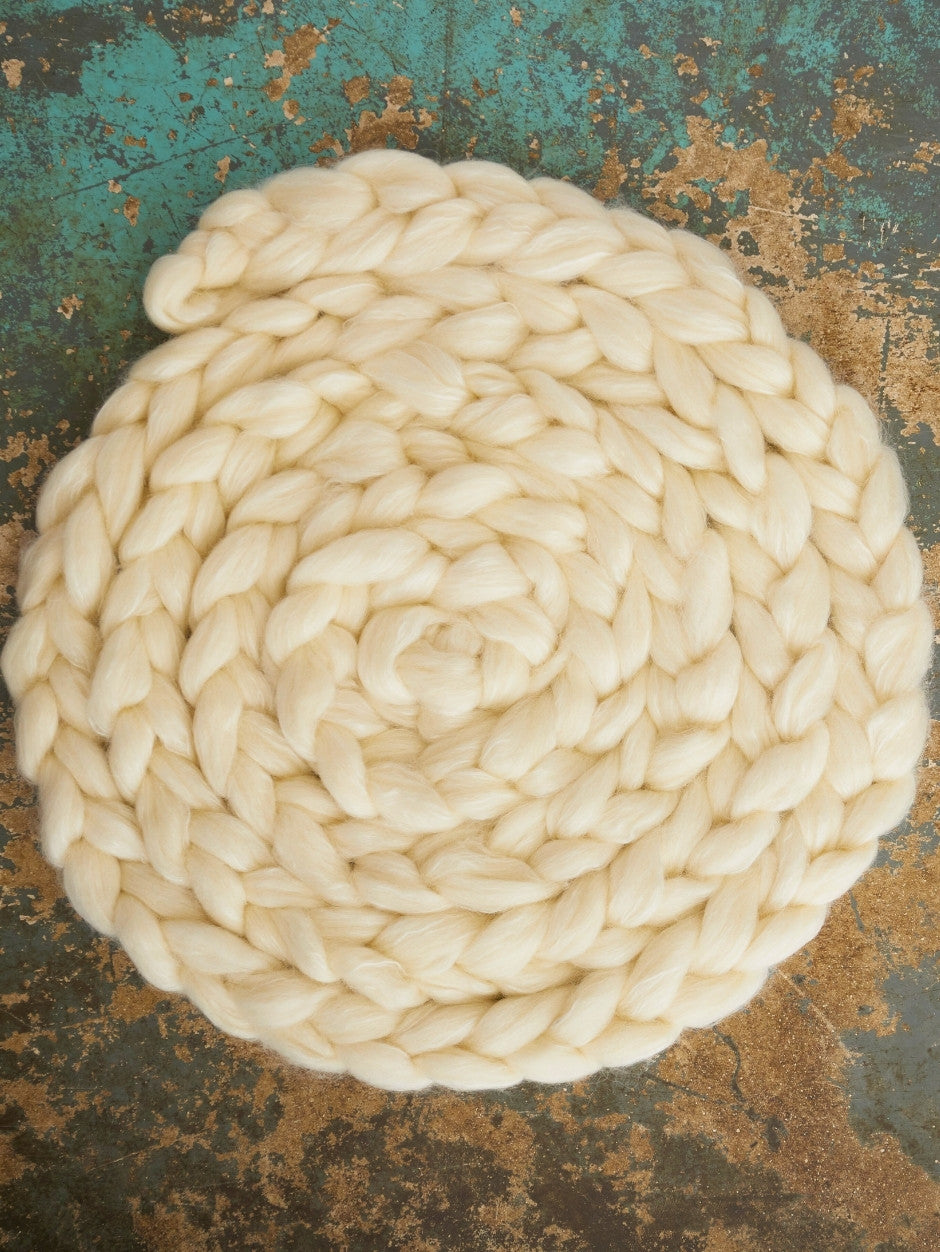
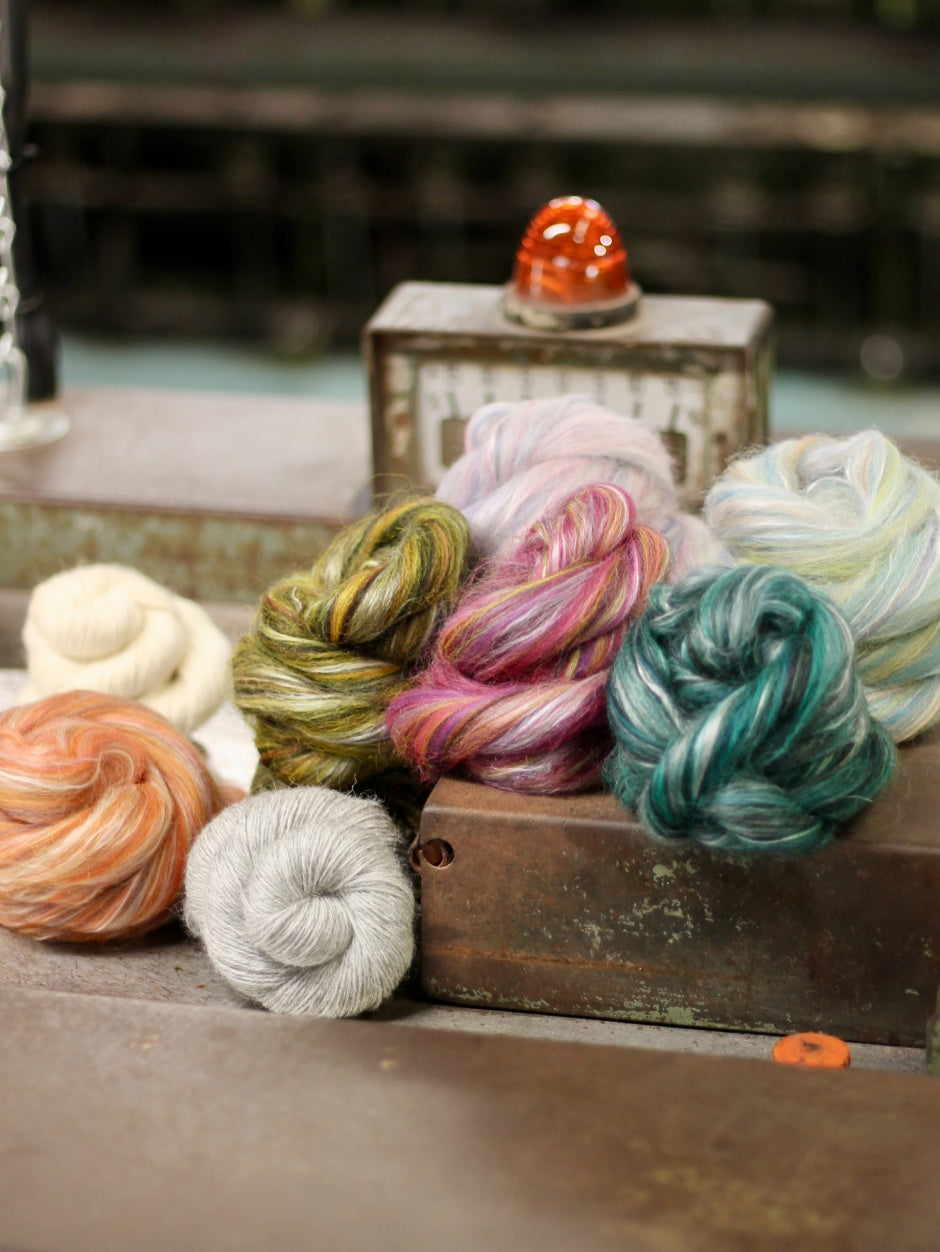
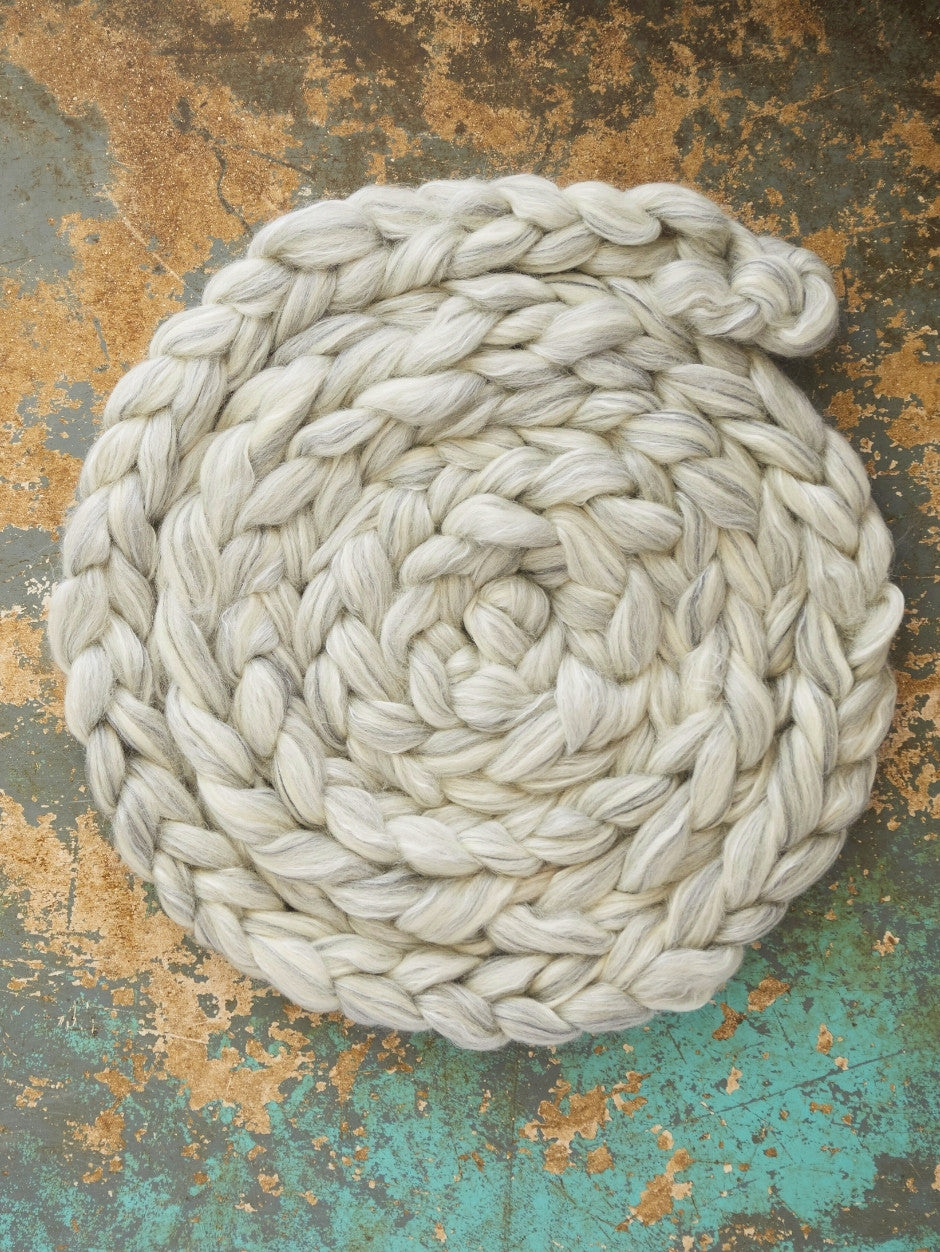
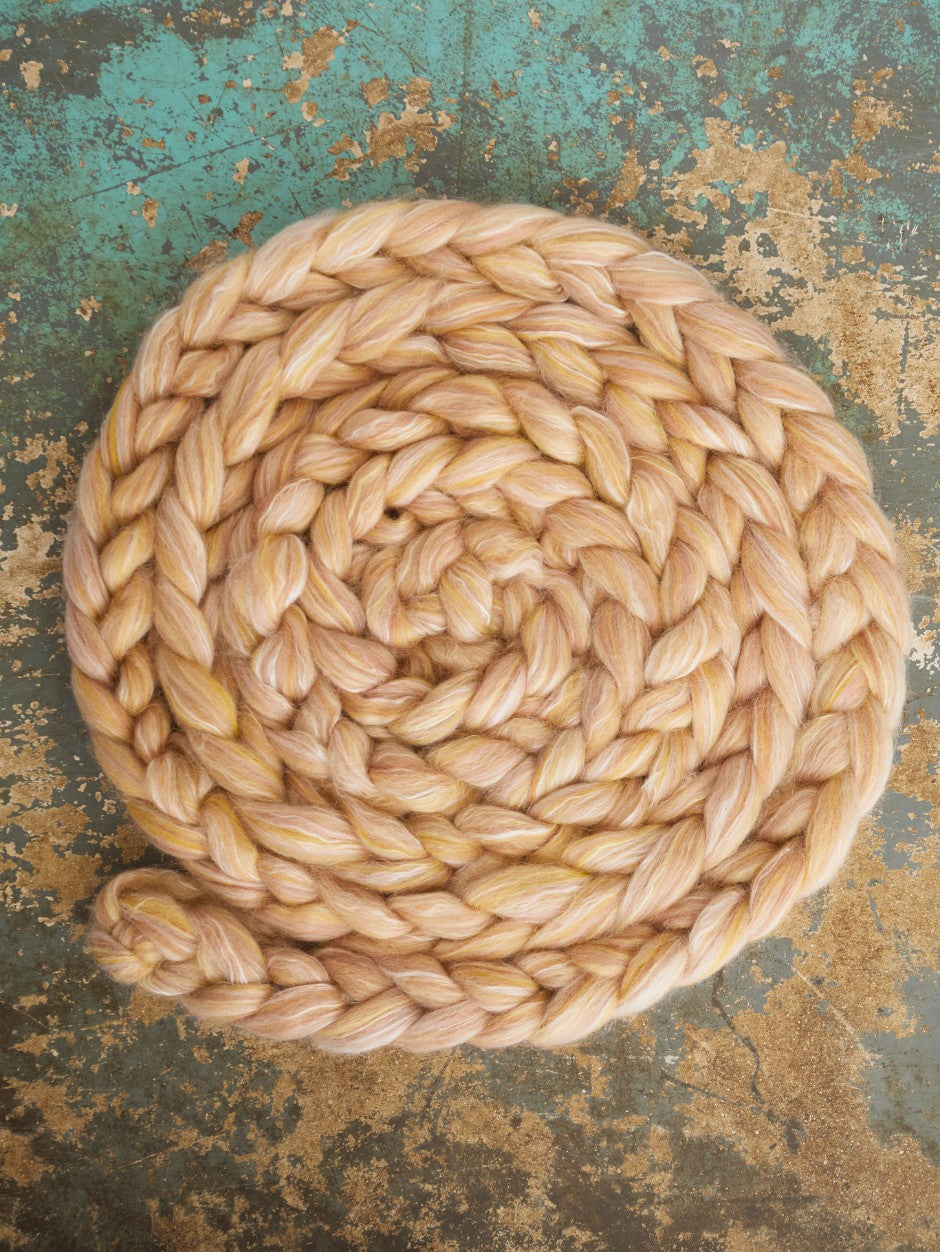
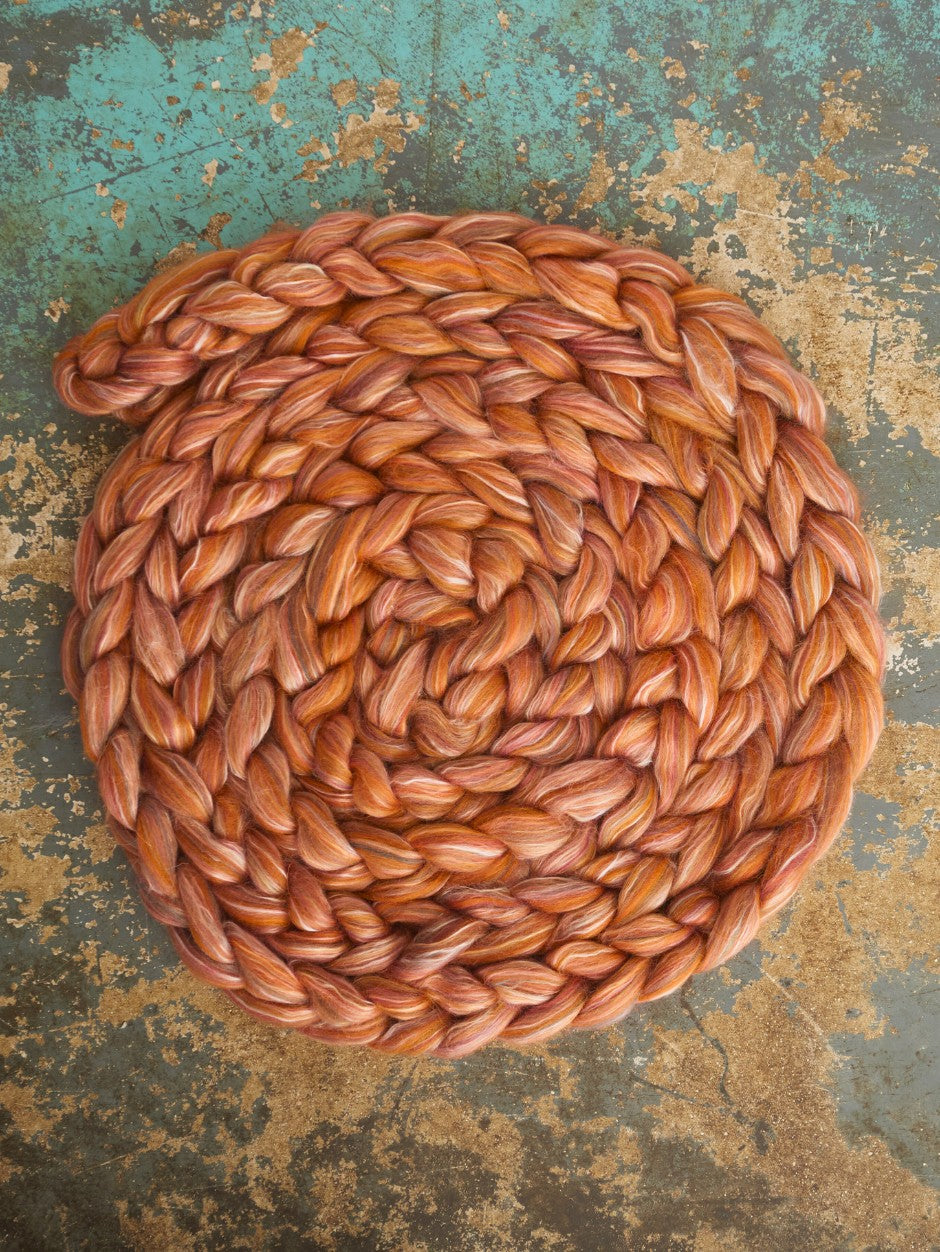
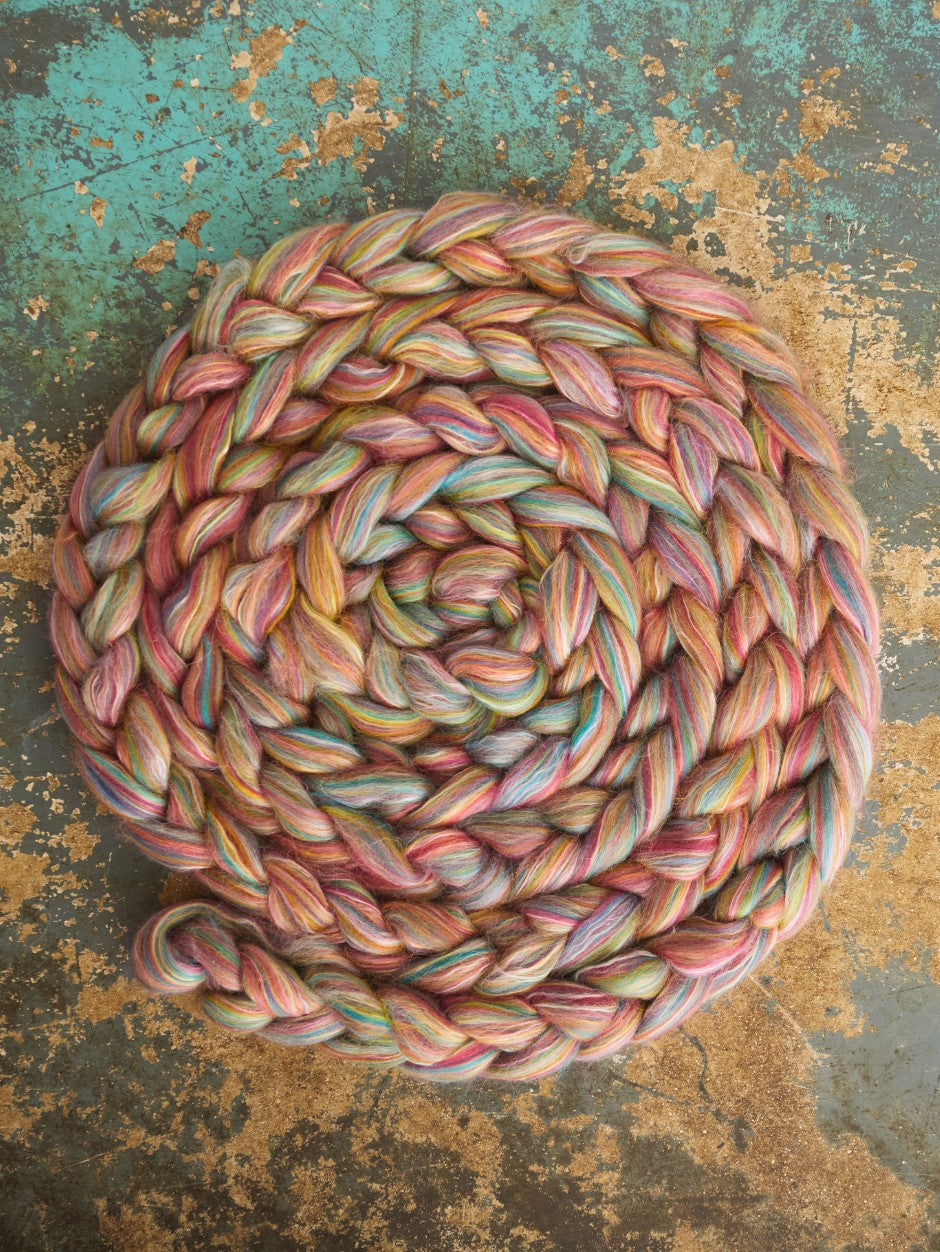
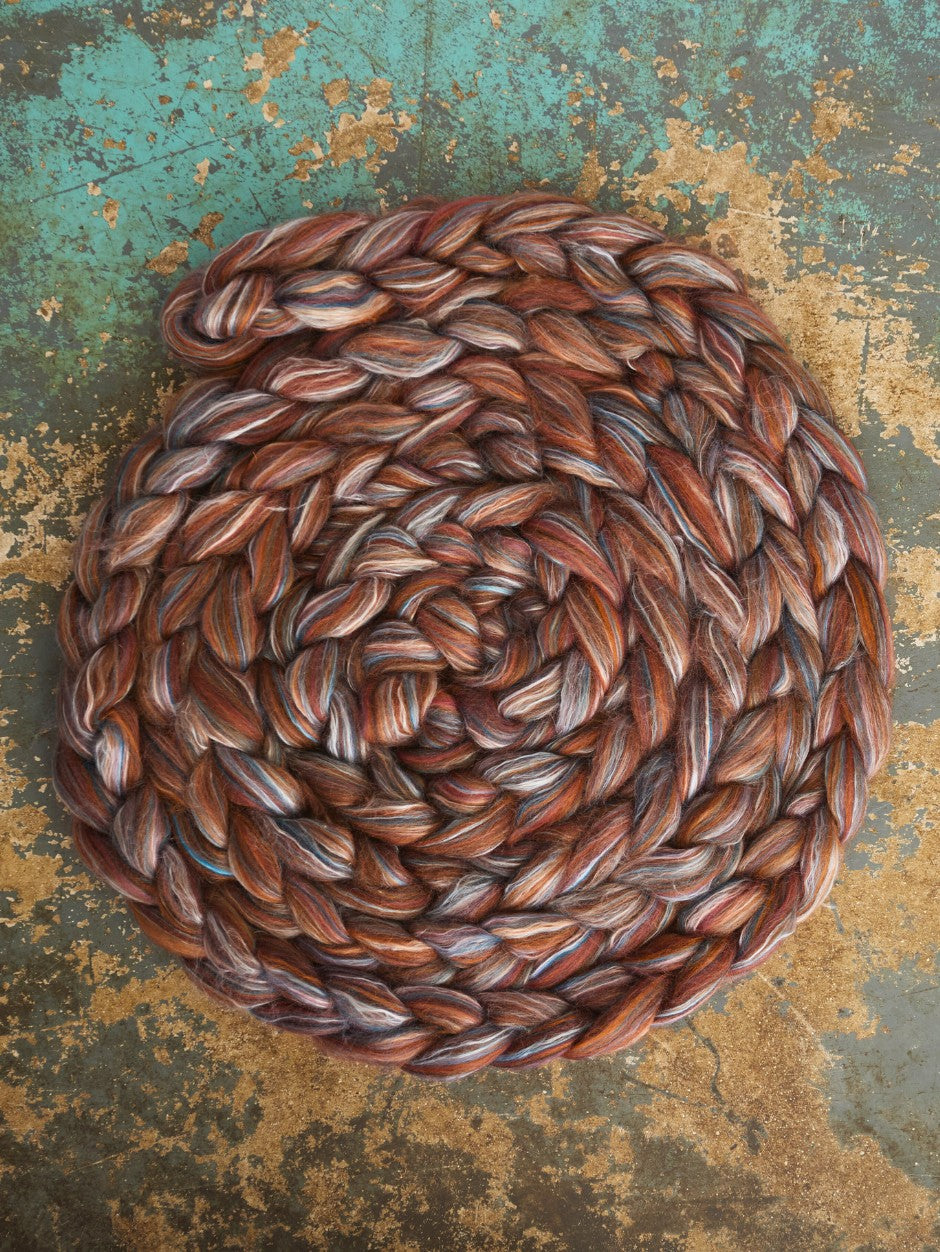
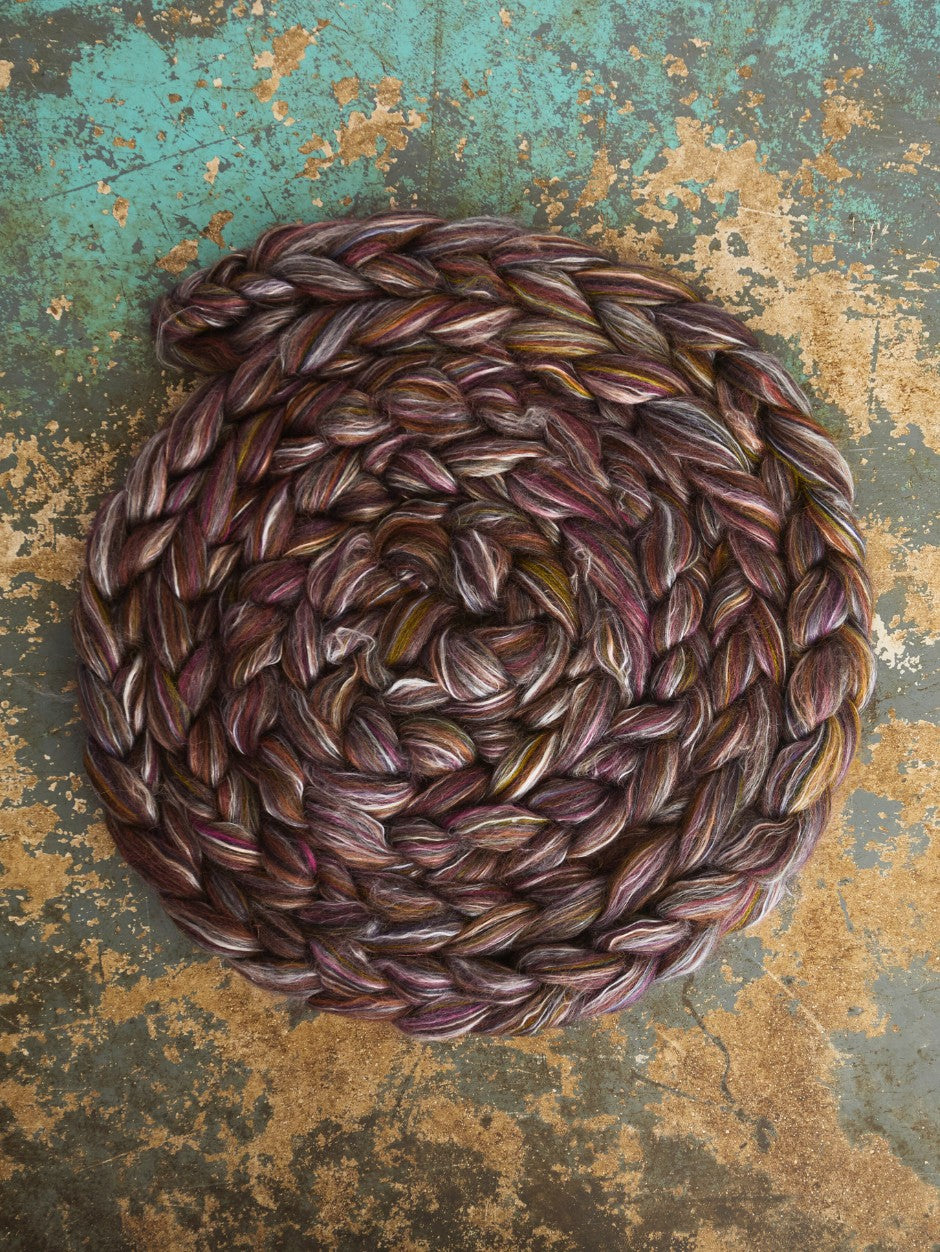
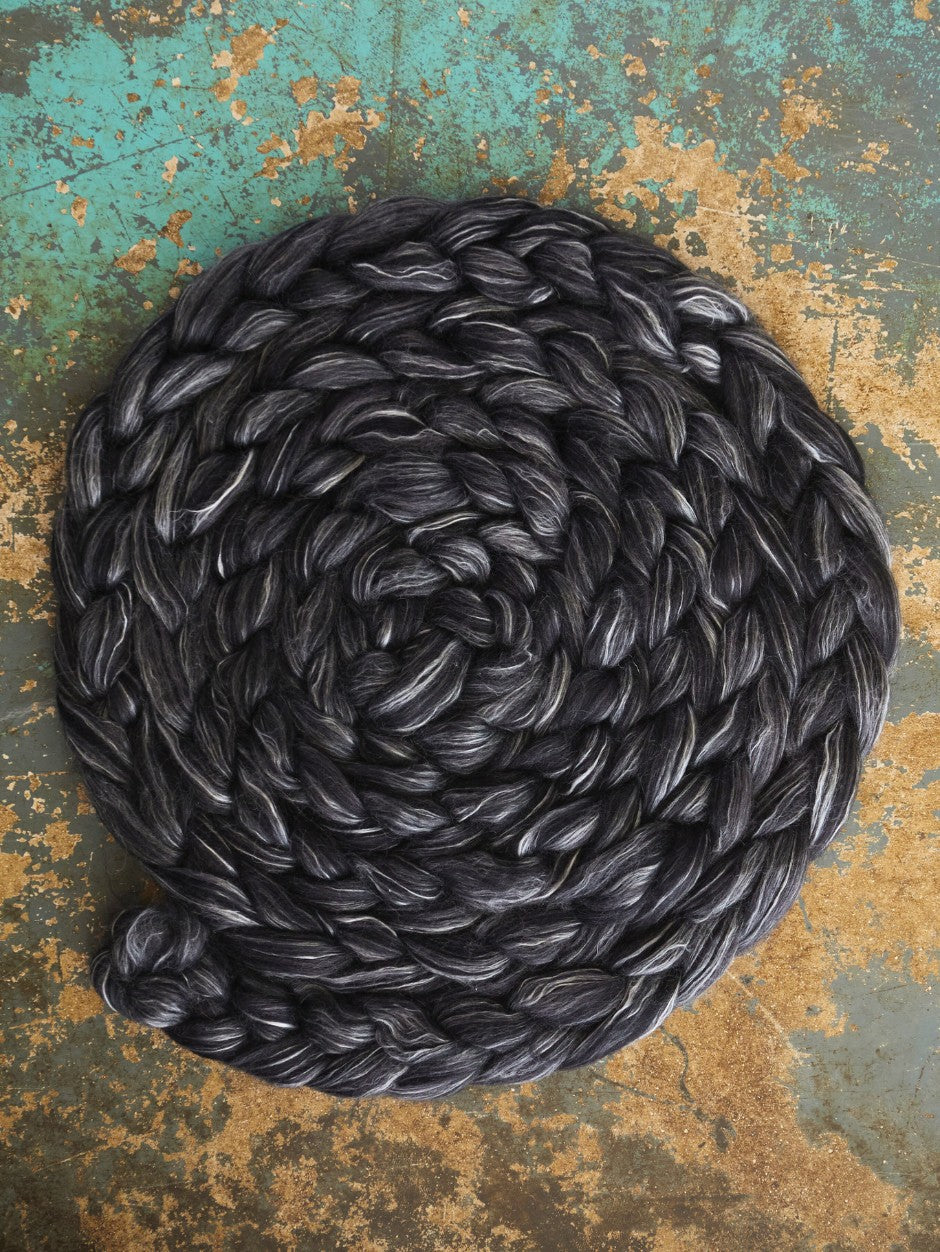
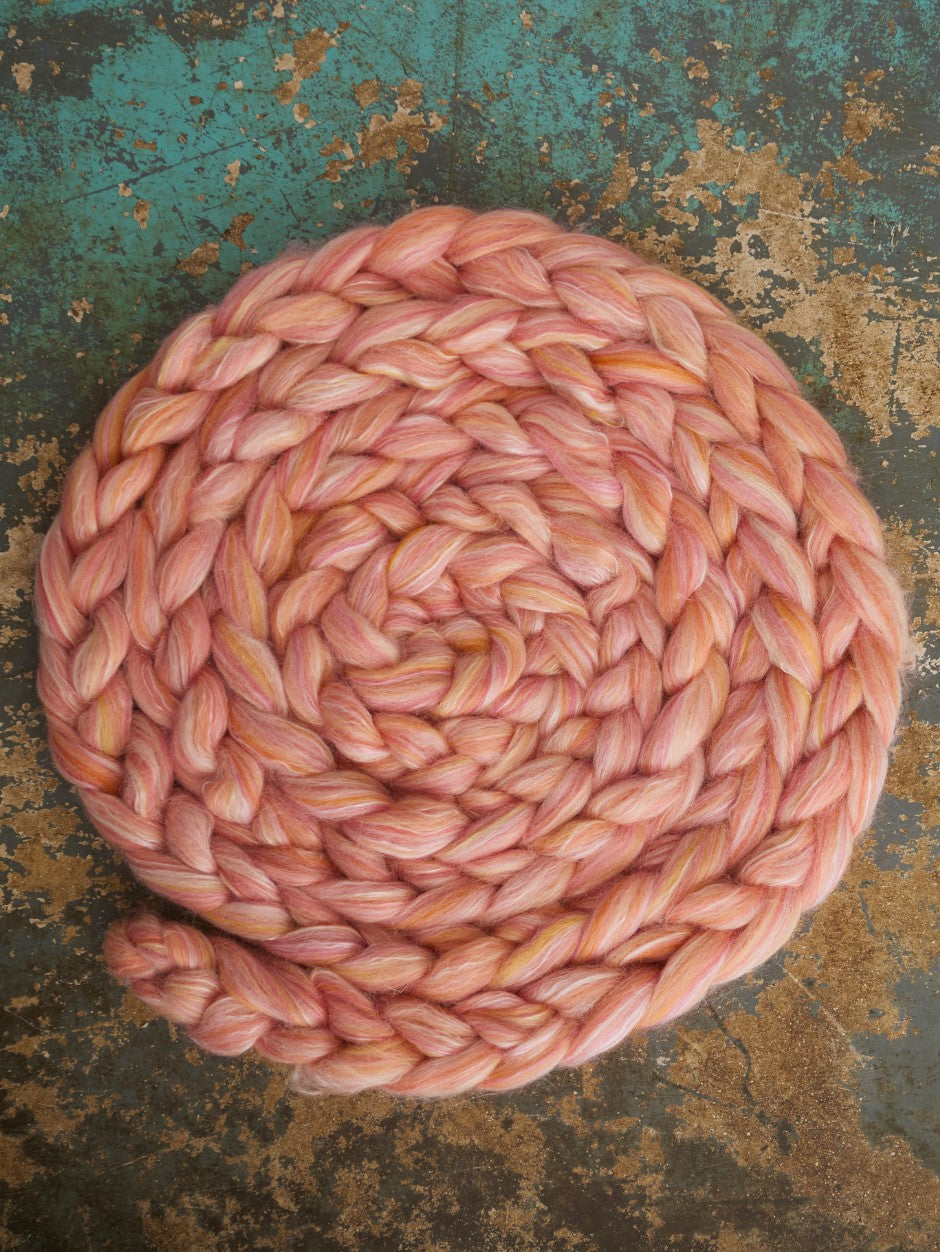
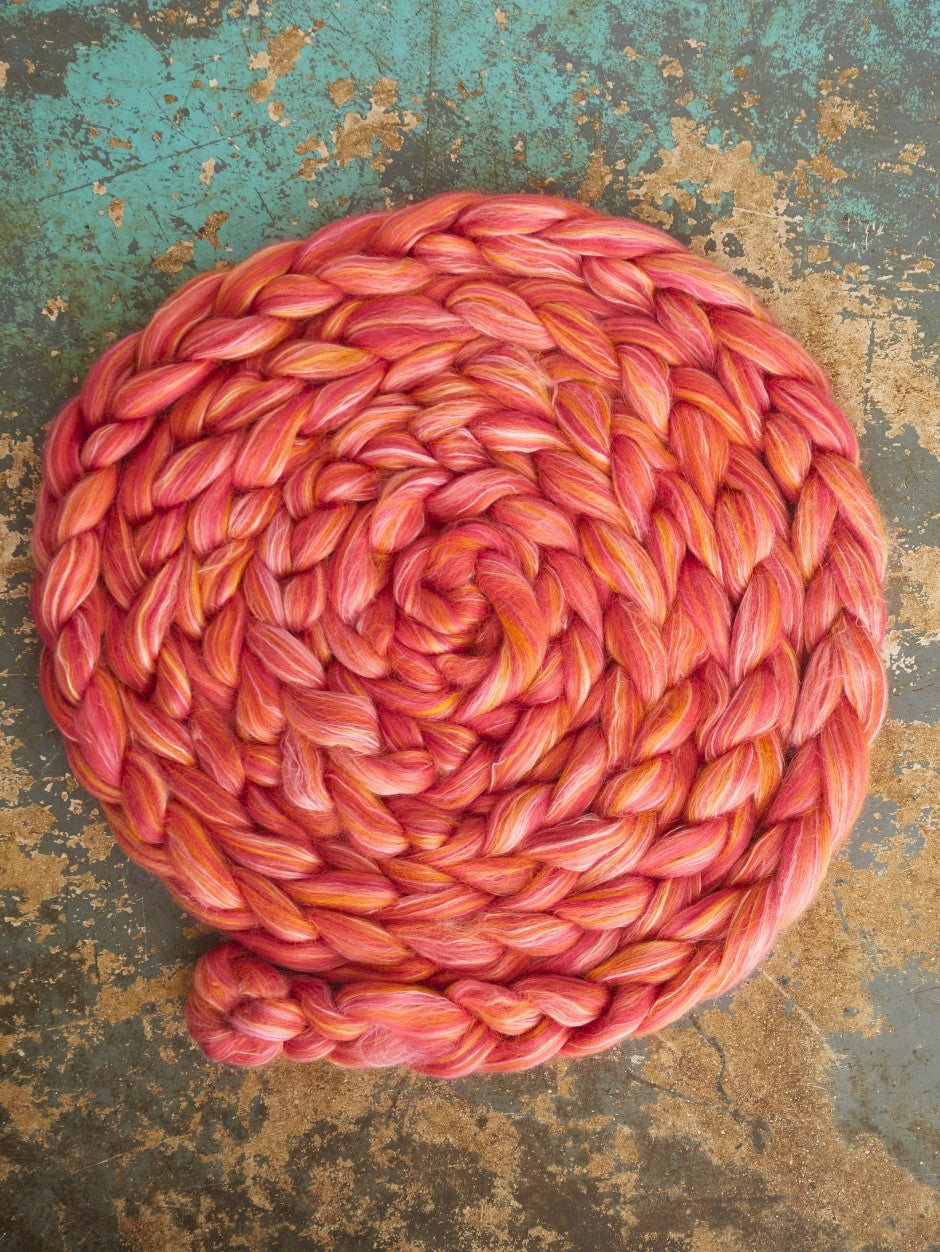
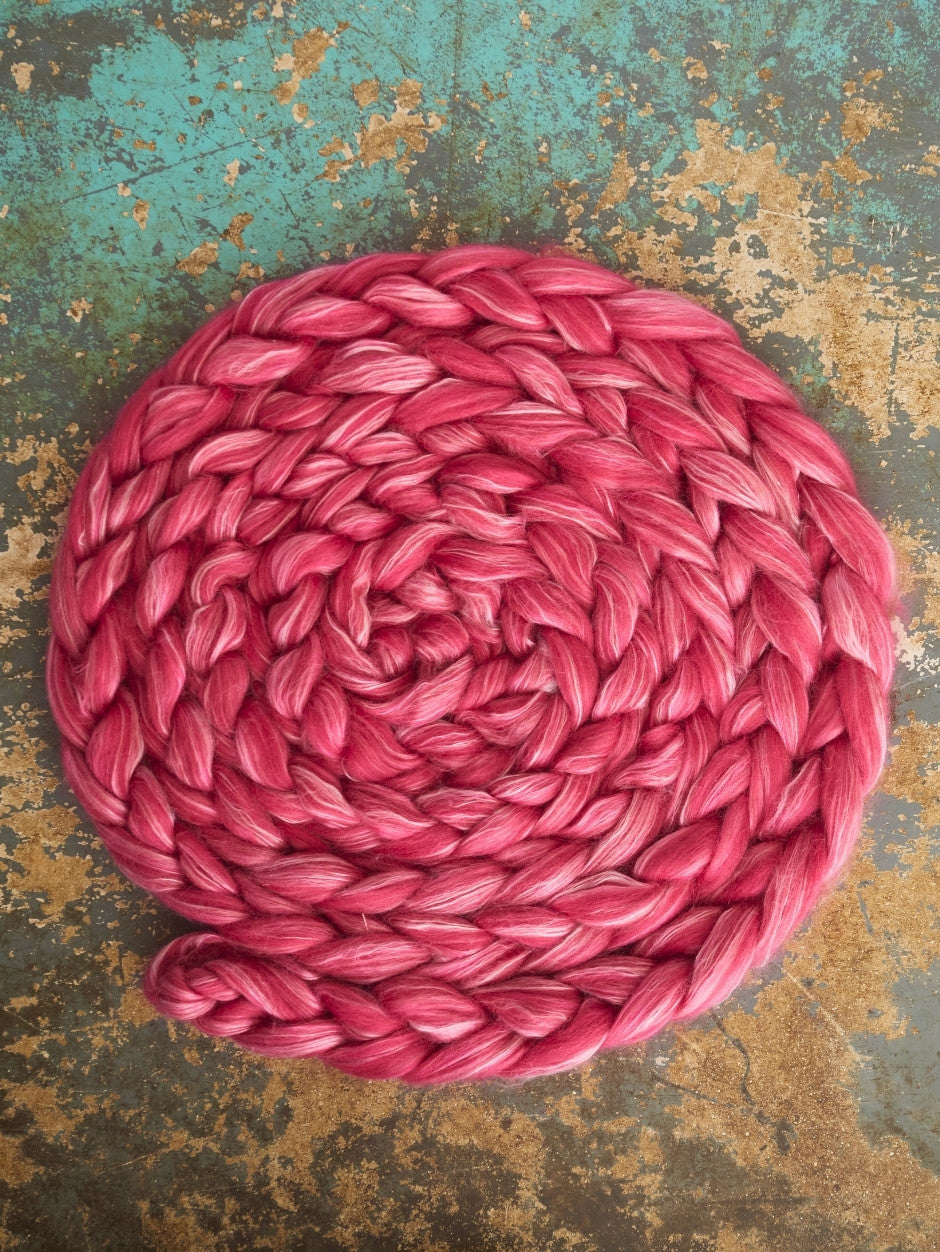
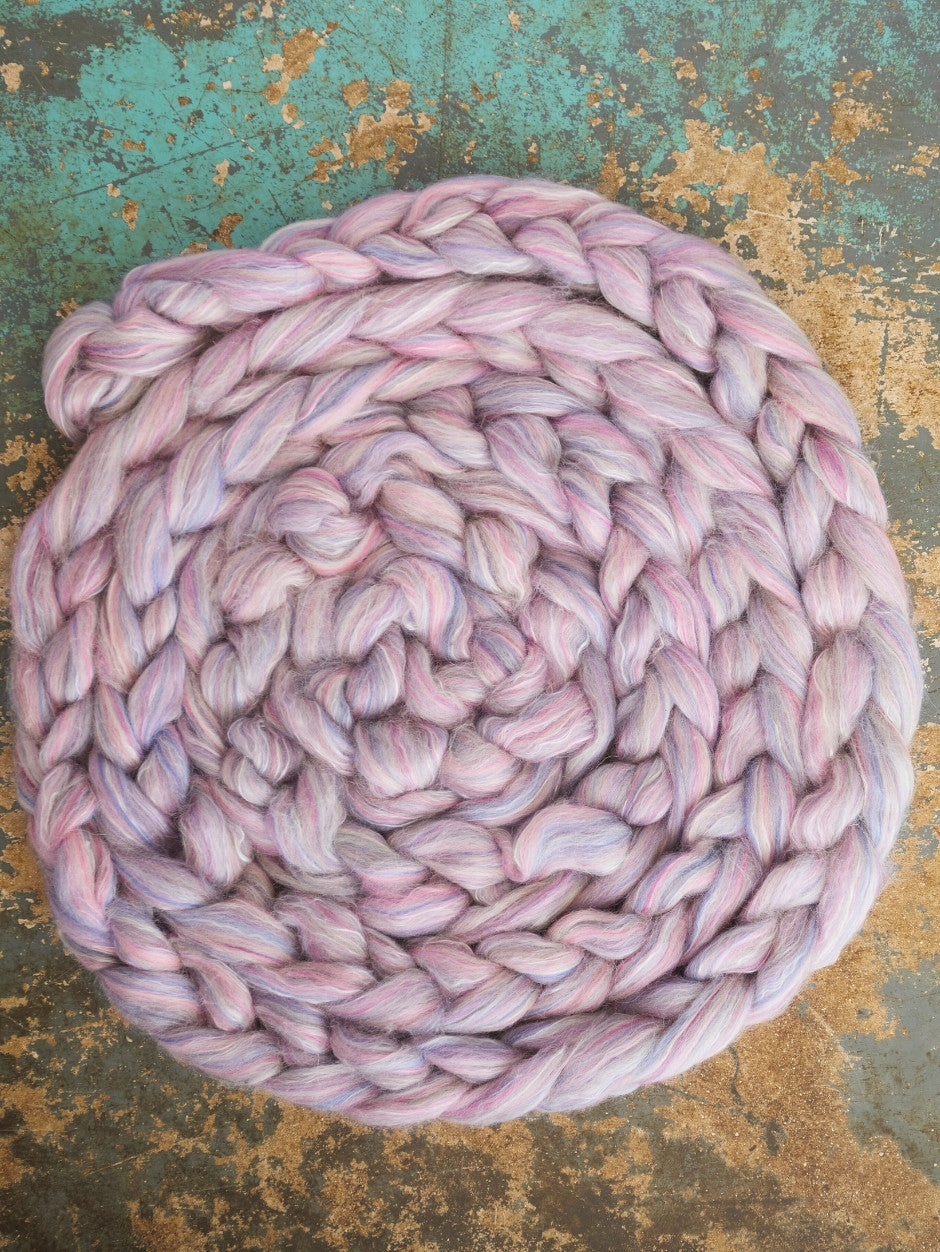
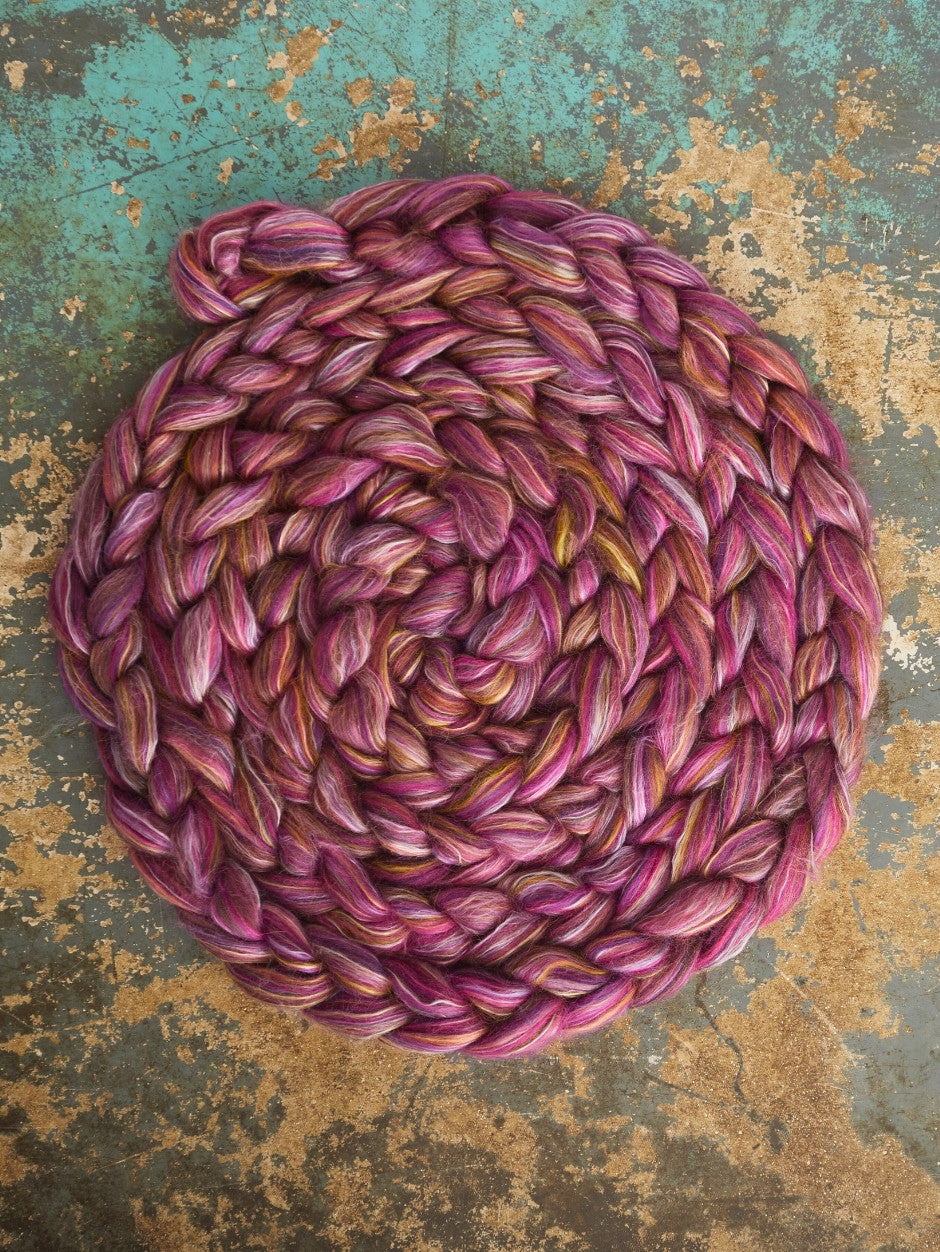
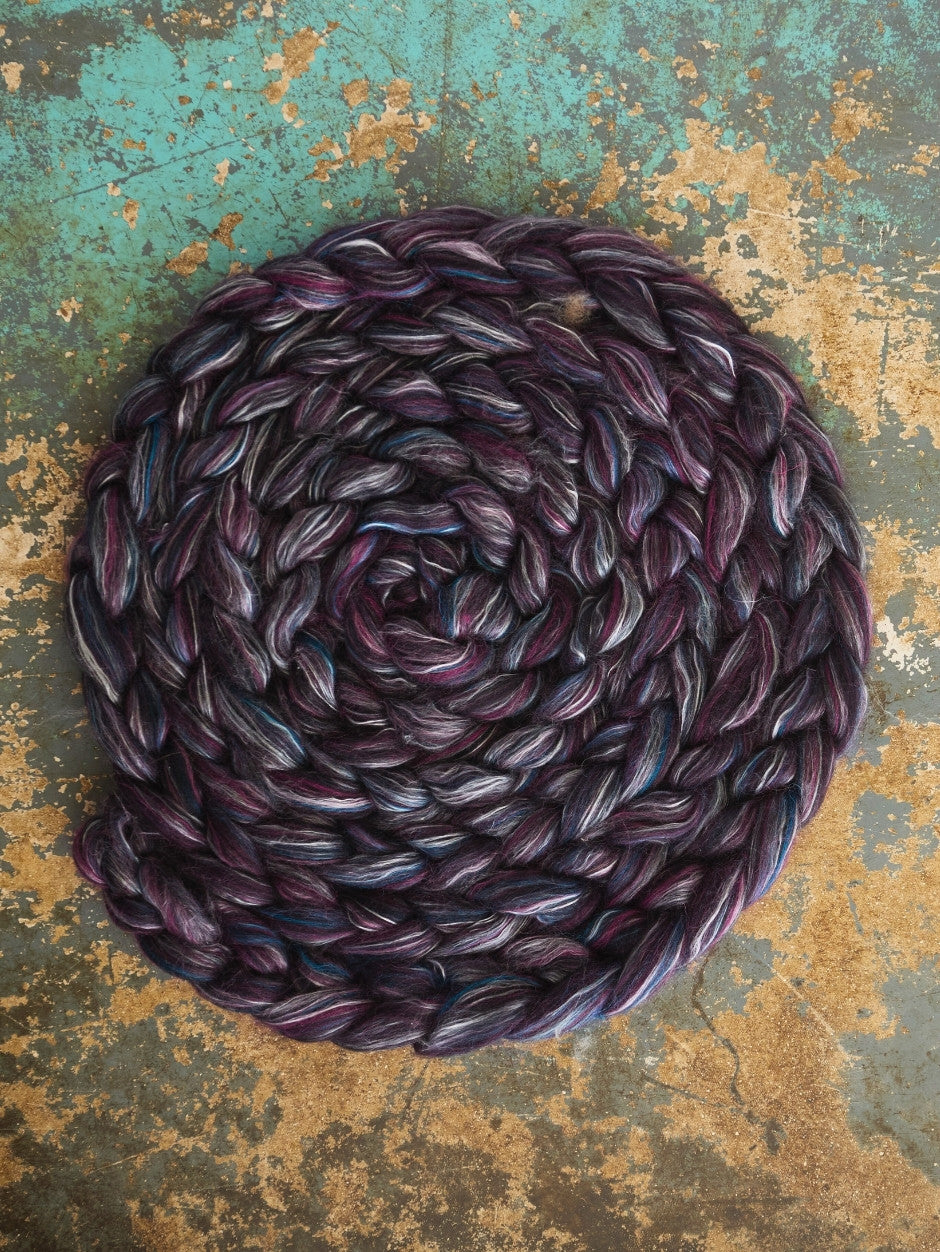
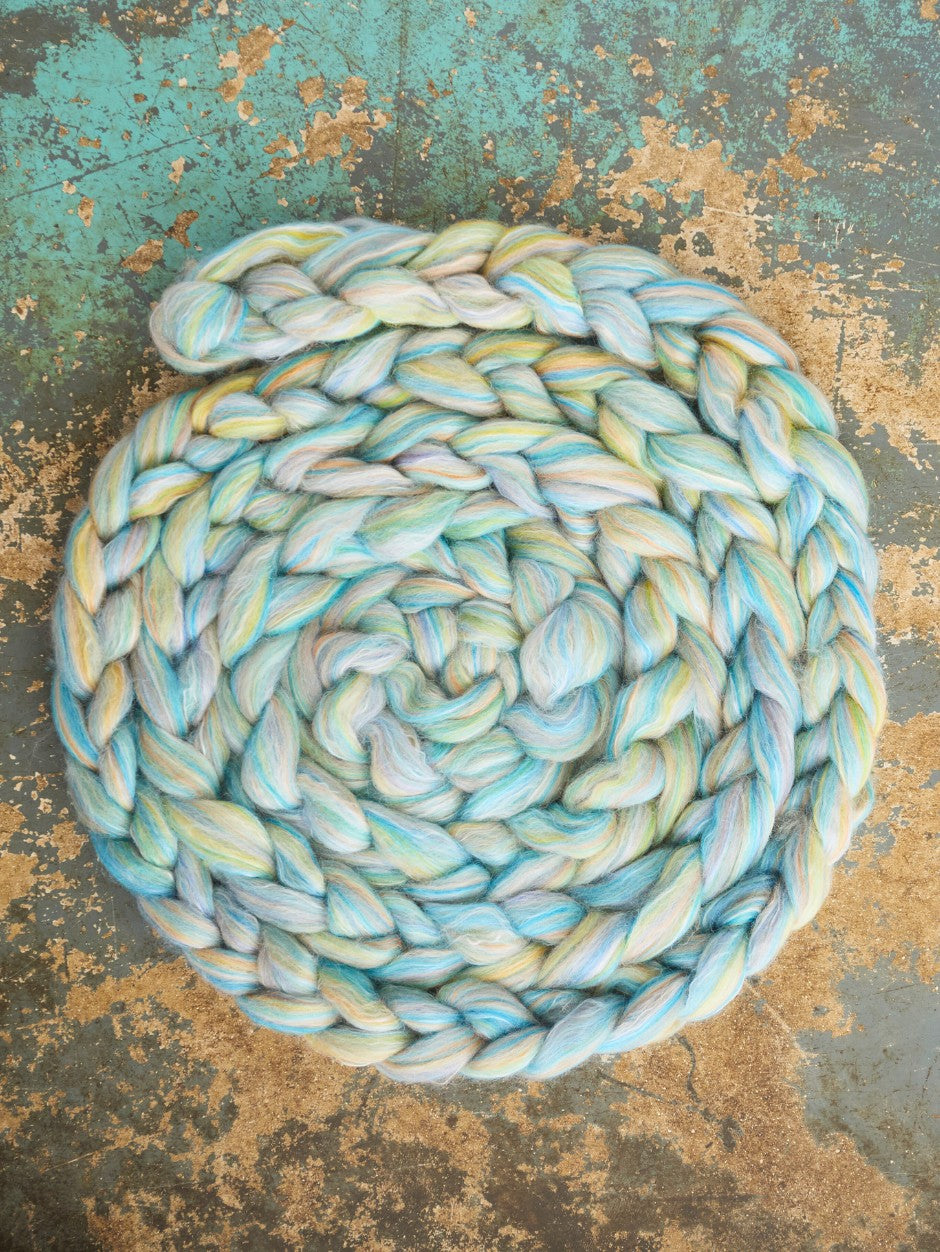
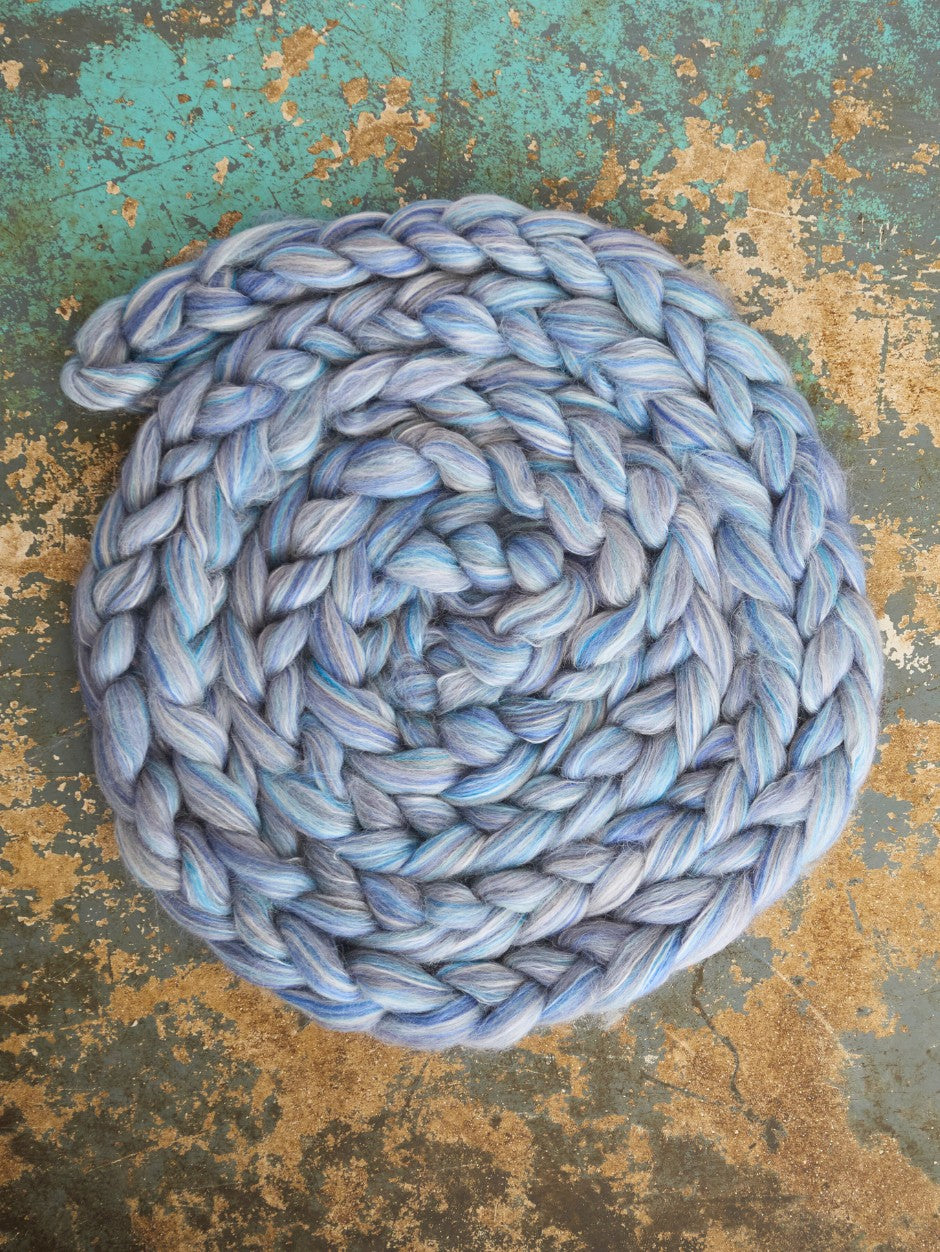
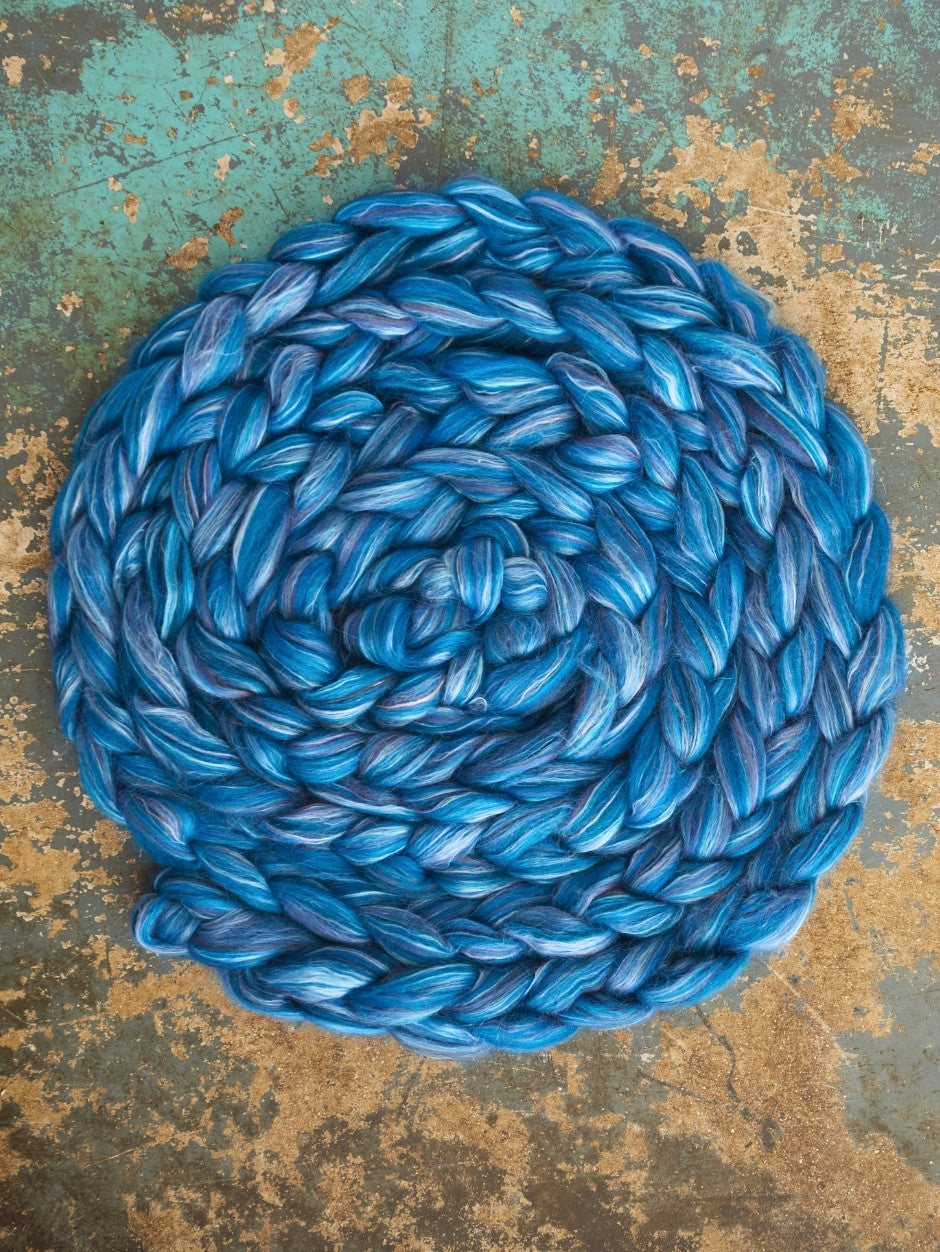
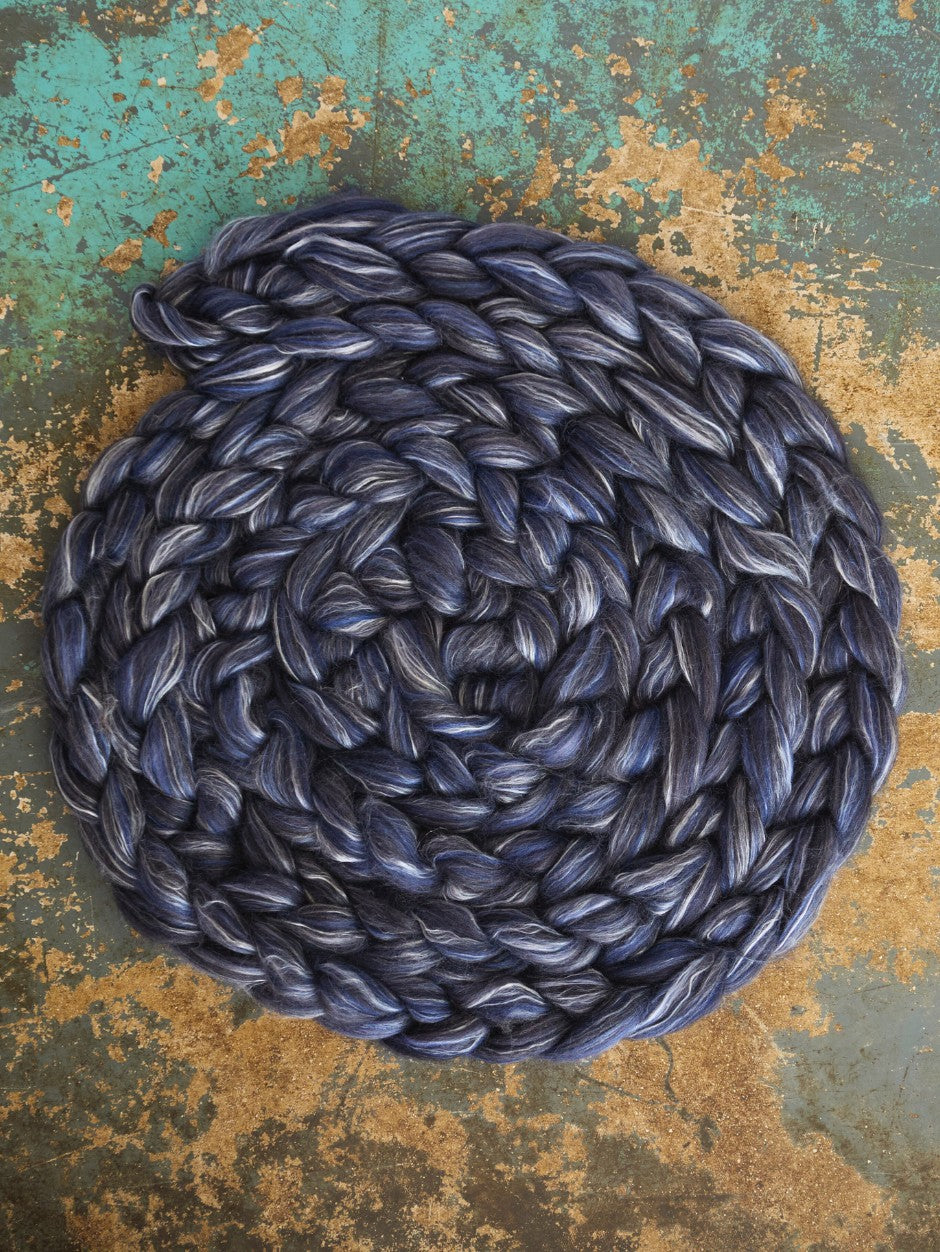
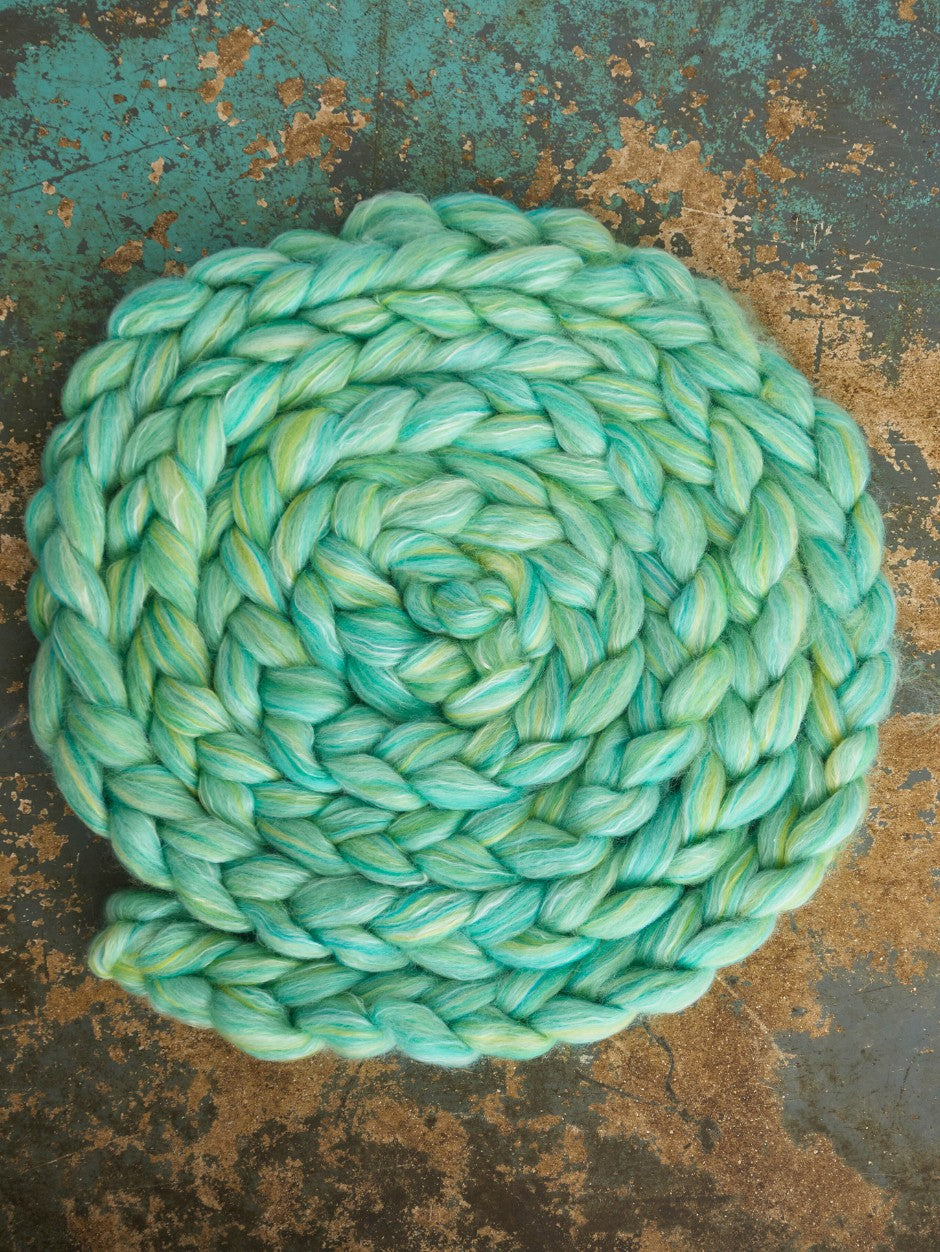
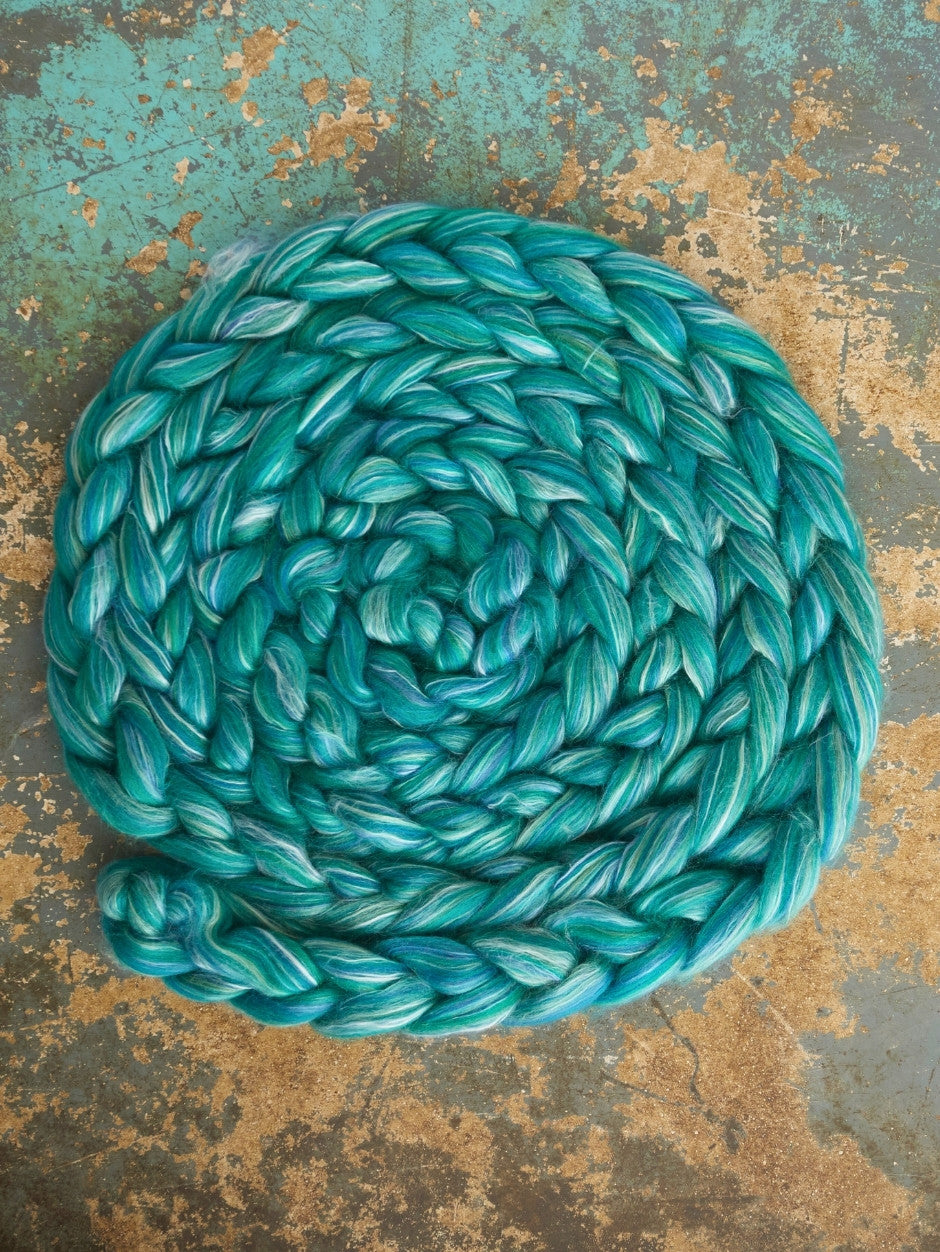
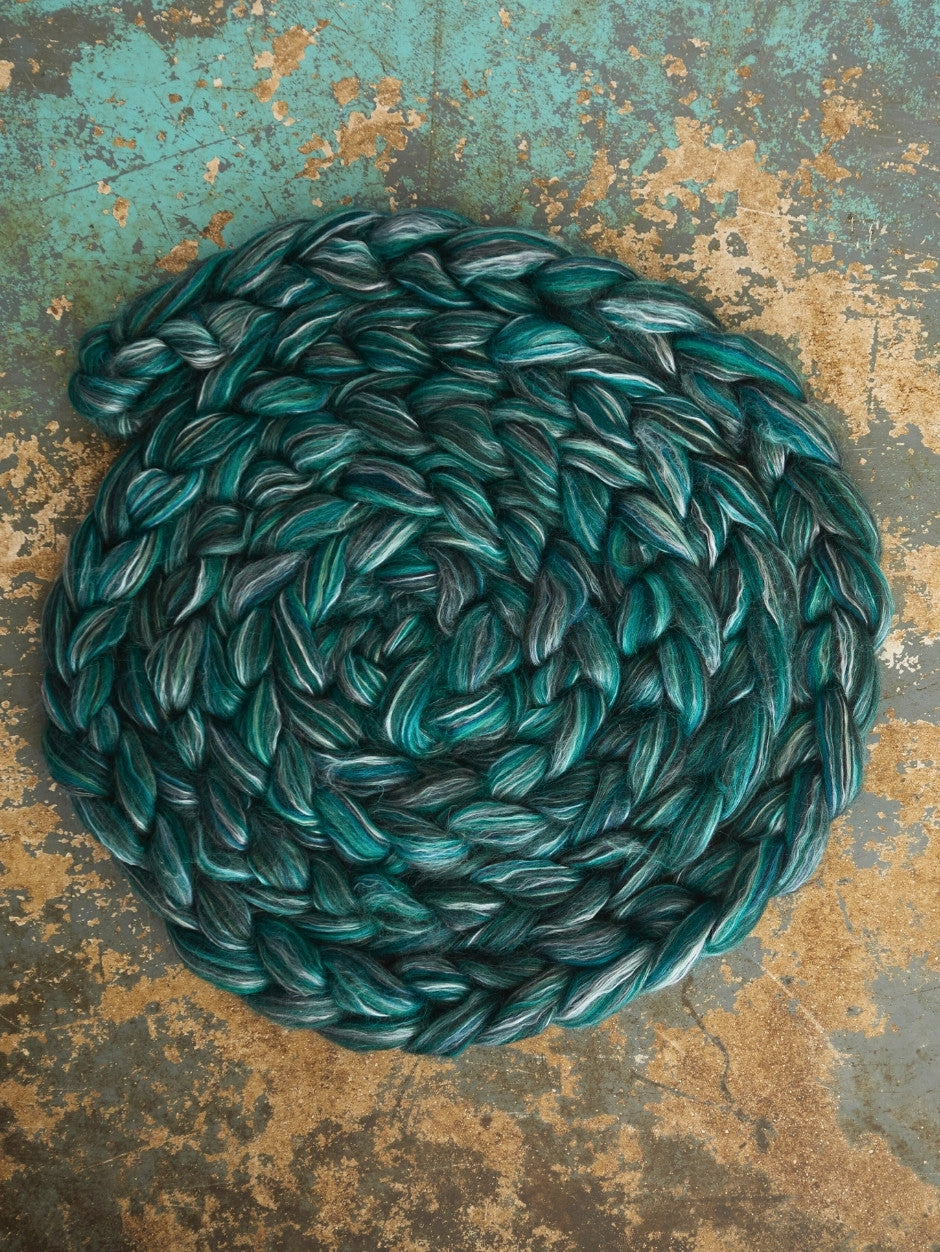
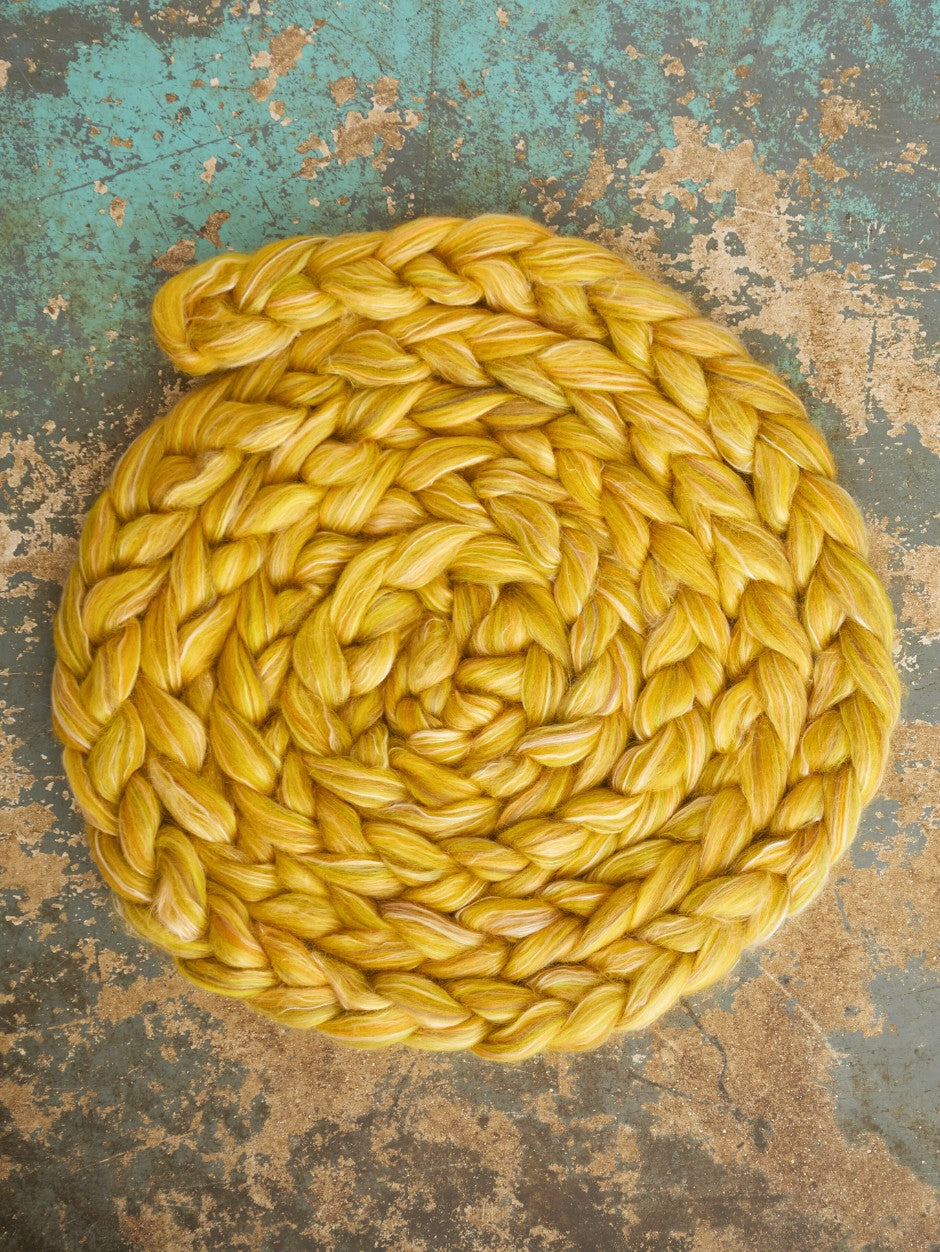
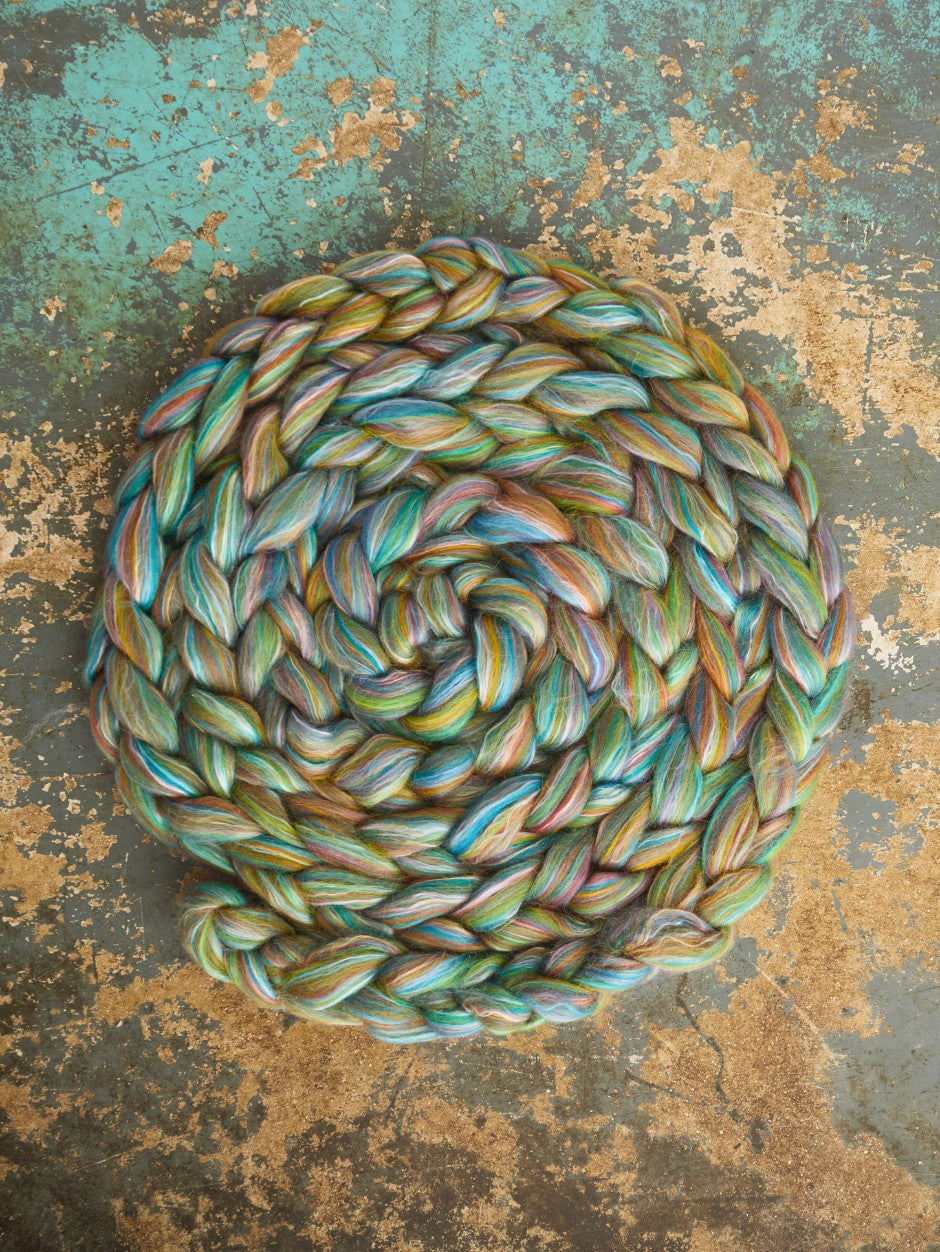
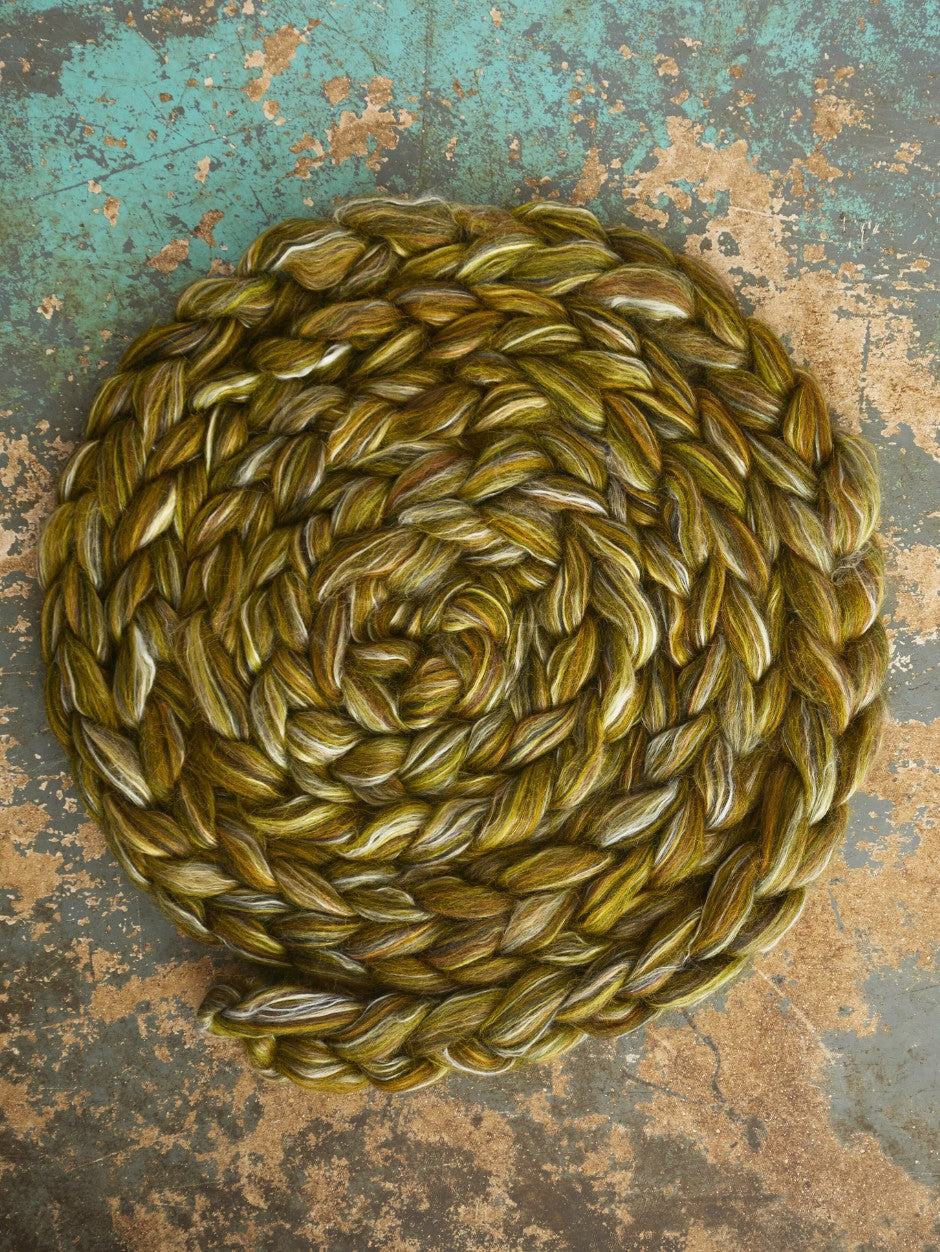
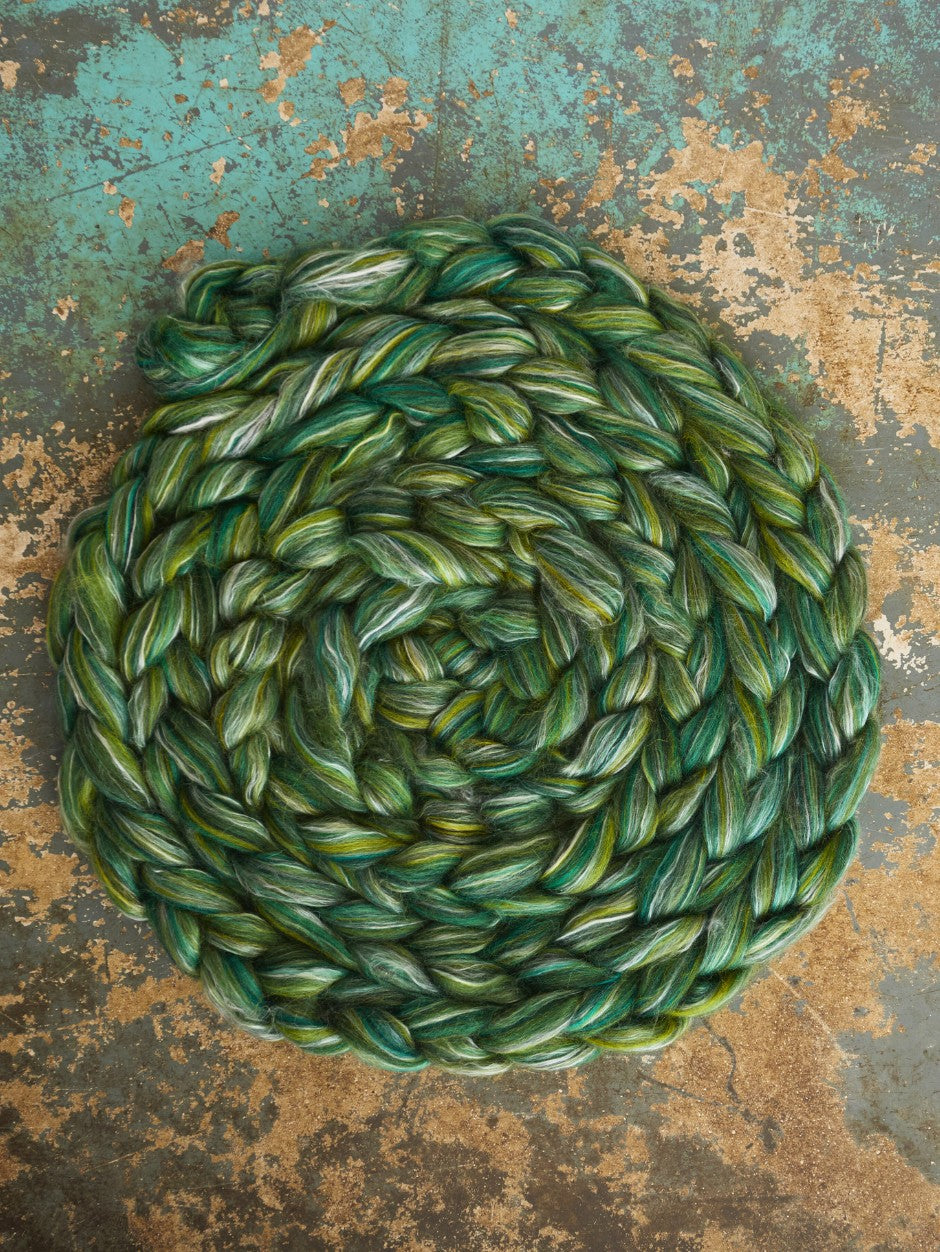
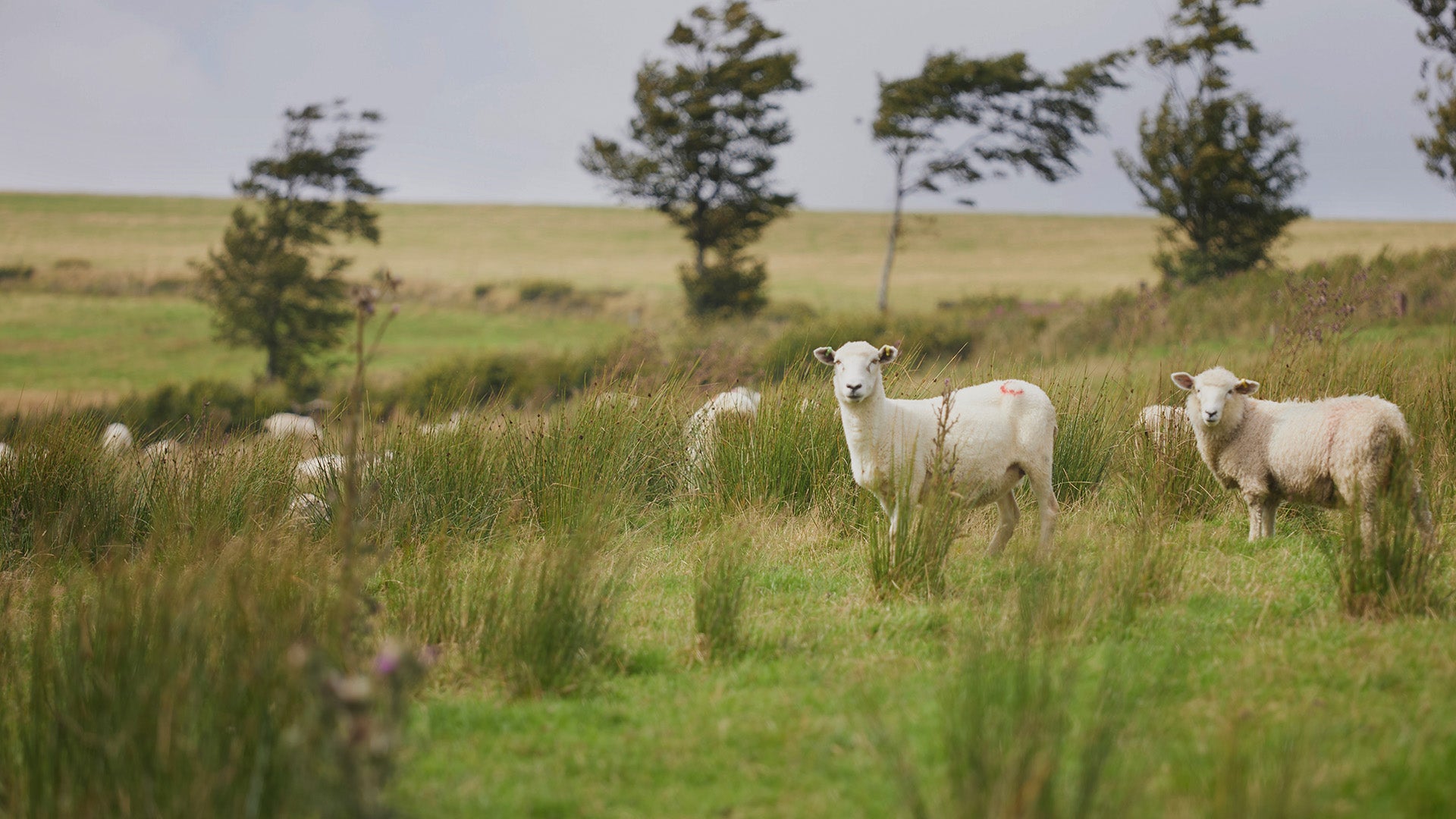
Local Fibre
Our mill is situated in the heart of North Devon. As much as possible we use the fibre which is reared and sheared on this land, utilising the unique properties of each breed in our yarn and tops.
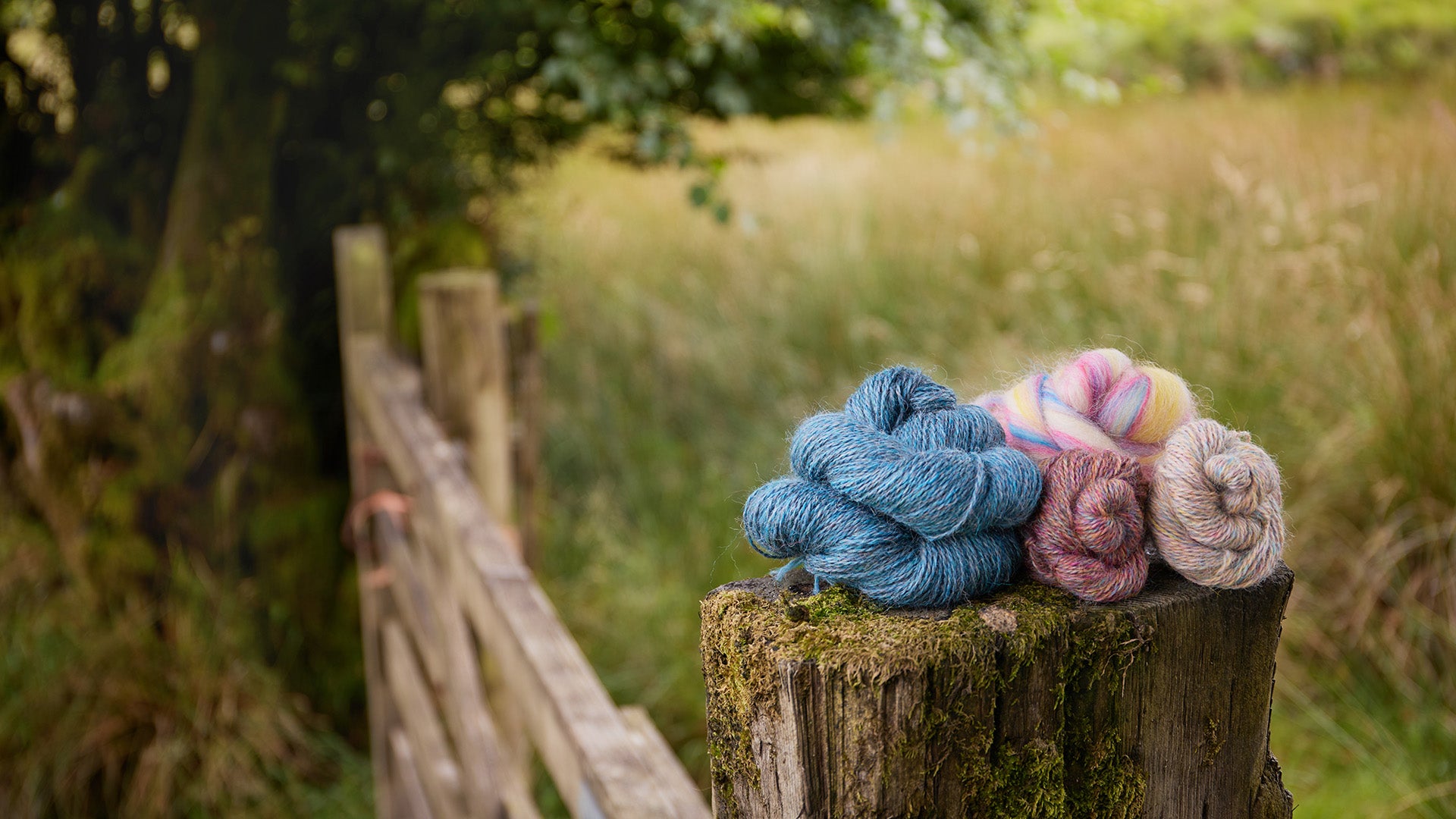
Unique Yarn & Tops
The hours of work and skill that go into producing one of our yarn and tops ranges is reflected in the dedication of a knitter, spinner or crocheter during the intricate journey from beginning to finished garment – both are a harmony of tradition and creativity.
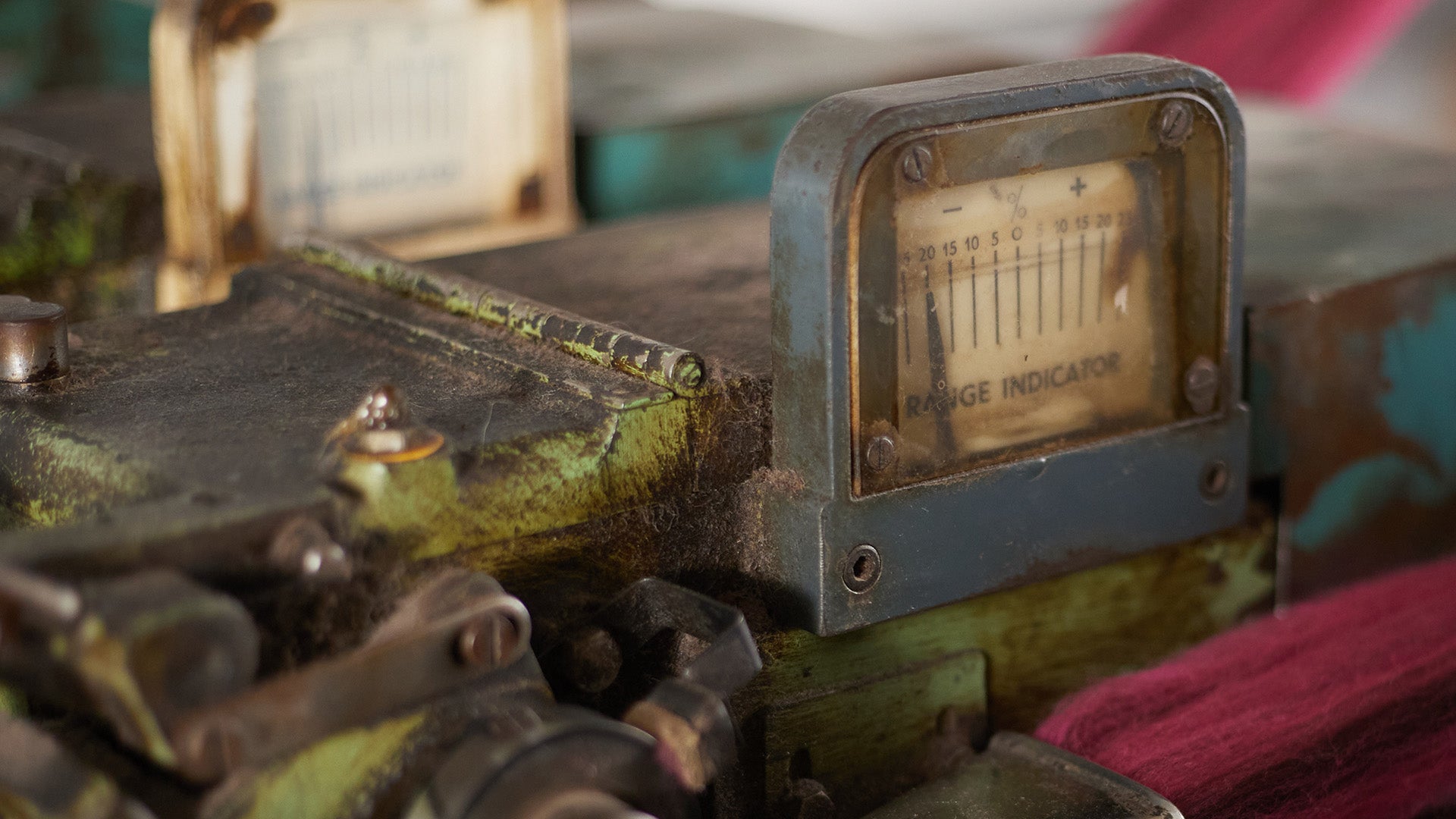
Vintage Machines
Our Mill is one of only a handful of small-scale worsted spinning mills still operating in the UK. Many of our vintage machines were rescued from old, traditional mills before their closure. Keeping them going is a labour of love, but we reckon that the resulting woolly treats are well worth it!
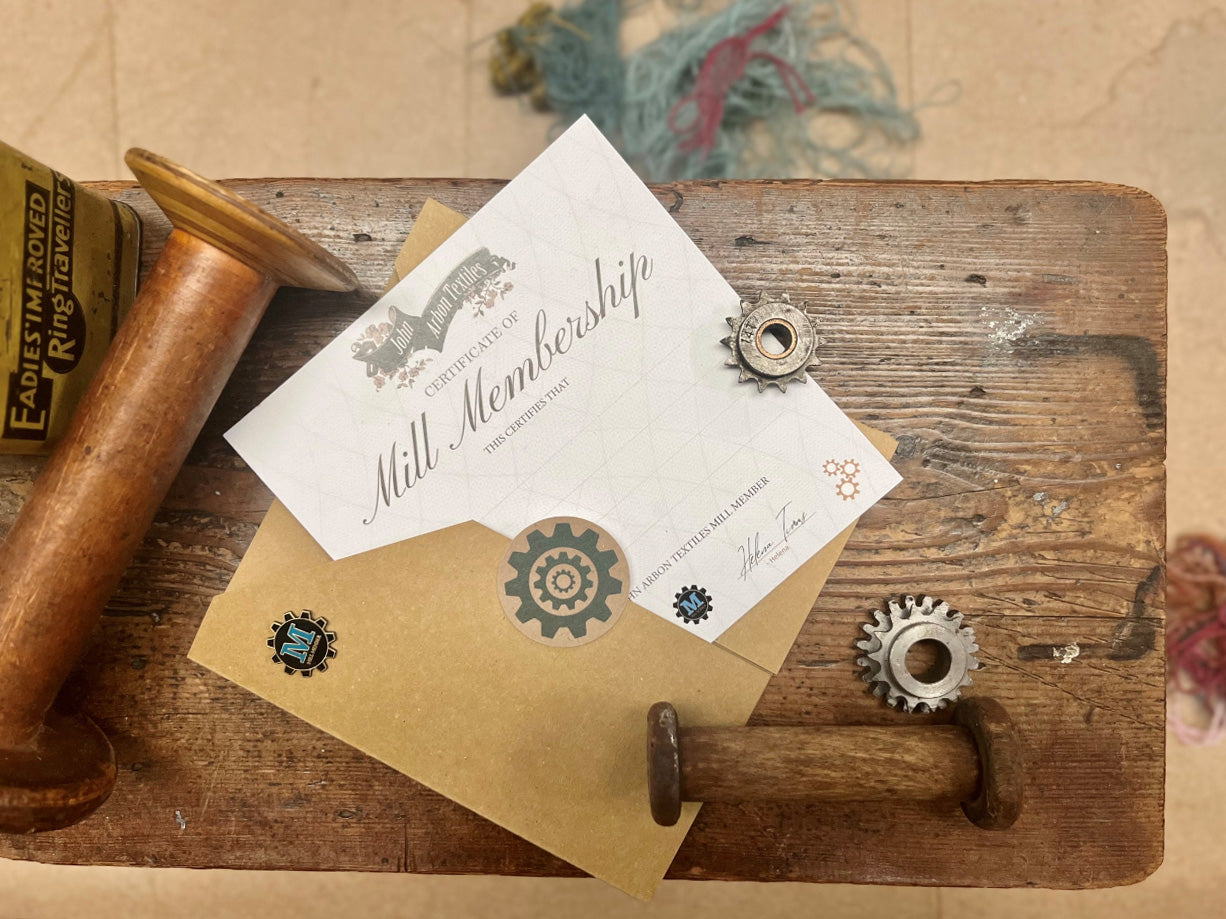
10% Off with Mill Membership
Our Mill Members receive access to oodles of limited edition specials, early access to new products, a lifetime 10% discount and our heart felt thanks for helping us do what we love every day!


